This chapter will contain all information related to POSH
POSH - Prevention of Sexual Harassment at Workplace
POSH - Prevention of Sexual Harassment at Workplace ExpertFacing Harassment at Work: Should You Approach HR or the ICC first? Know your rights and How to File a Complaint.
Facing Harassment at Work: Should You Approach HR or the ICC first? Know your rights and How to File a Complaint.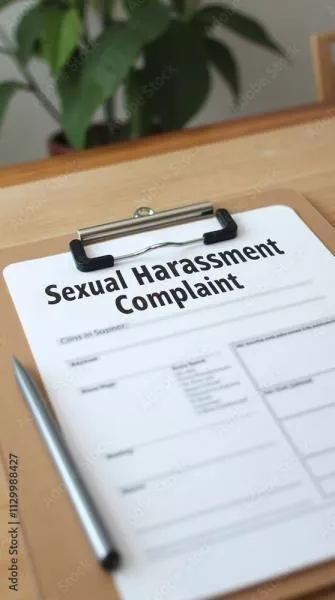
Formal Application Example for Filing a Complaint
[Date]
To
The Internal Complaints Committee (ICC)
[Company Name]
[Company Address]
Subject: Complaint of Sexual Harassment
Dear [Name or ICC Members],
I am writing to formally file a complaint regarding the
harassment I have been experiencing at the workplace.
The details of the incident(s) are as follows:
Date of Incident(s): [mention the date(s) of the incident]
Location: [mention the location where the incident occurred]
Nature of Harassment: [briefly describe the nature of the
harassment, e.g., inappropriate gestures, comments, etc.]
Perpetrator(s): [name(s) of the alleged harasser(s)]
Witnesses: [name(s) of anyone who may have witnessed the
incident]
I have not been comfortable addressing the situation directly
with the individual, and I believe
This matter requires formal intervention. I request that this complaint be
investigated and
Appropriate actions be taken according to the guidelines set out by the POSH Act.
I am also available for any further discussion or to provide
additional information, if required.
Thank you for your attention to this matter.
Sincerely,
[Your Full Name]
[Your Position]
[Your Contact Information]
How to File a Sexual Harassment Complaint Under the POSH Act: A Step-by-Step Guide
- Workplace harassment, particularly sexual harassment, is a serious issue that every organisation must address to create a safe and respectful environment. The Prevention of Sexual Harassment (POSH) Act, 2013 was established to protect employees, especially women, from harassment and to ensure that they have a clear process to report any such incidents. If you are facing inappropriate gestures or sexual harassment in the workplace, here's a comprehensive guide on how to file a complaint under the POSH Act, the process you can expect, and what to do if your complaint isn't taken seriously.
1. Filing a Complaint: The First Step
Under the POSH Act, an employee who experiences sexual harassment must submit a formal written complaint to the Internal Complaints Committee (ICC). This is the first step in initiating the process, ensuring that the matter is investigated and appropriate actions are taken.
What Should the Complaint Include?
The written complaint must clearly state:
- Date of Incident(s): When the harassment occurred.
- Location: Where the incident took place (e.g., office, conference room, etc.).
- Details of the incident: A brief description of what occurred, including the nature of the harassment (e.g., inappropriate comments, gestures, or physical actions).
- Prepetrator(s): Name(s) of the individual(s) involved in the harassment.
- Witnesses: Any colleagues or other individuals who observed the incident.
The complaint should be submitted within 3 months of the incident, or sooner if the harassment is ongoing.
2. Where to File the Complaint? HR or ICC?
While HR (Human Resources) is often the first point of contact for employees, the POSH Act mandates that every organisation with more than 10 employees must have an Internal Complaints Committee (ICC), which is responsible for handling complaints of sexual harassment.
If HR is Unresponsive:
Approaching the ICC Directly: If HR is unresponsive or dismisses your complaint, you can directly approach the Internal Complaints of sexual harassment and recommend actions accordingly.
Why the ICC? The ICC is trained to deal with such matters and has the authority to handle the complaint confidentially, impartially, and seriously.
Why Involve HR?
HR's Role: HR can assist in guiding you through the complaint process, help with documentation, and facilitate communication with the ICC. However, HR must not interfere in the investigation once the complaint is filed with the ICC.
3. What Happens After the Complaint is Filed?
Once the written complaint is filed, the ICC is responsible for:
- Acknowledging the Complaint: The ICC must acknowledge receipt of the complaint.
- Investigating: The ICC will conduct a thorough investigation, interviewing the complainant, the accused, and any witnesses, ensuring fairness and confidentiality.
- Action: Based on the investigation, the ICC will recommend actions, which may include:
- Corrective Actions: Disciplinary measures against the accused (e.g., suspension, termination).
- Support for the Complainant: providing counselling, work adjustments, or other necessary support.
4. What If HR or ICC Fails to Act?
If HR or the ICC fails to address the complaint seriously or does not take prompt action, the employee can escalate the matter. Here are the steps to take:
Escalate to Senior Management
If the issue persists, the employee can escalate the matter to senior management or the CEO of the company. Senior management has the responsibility to ensure that proper procedures are followed.
Approach External Authorities
- District Officer: The District Officer oversees the implementation of POSH laws and can take action of internal remedies are not followed.
- National Commission for Women (NCW): The NCW can intervene in the matter if the organisation fails to act appropriately.
Legal Action
If all internal and external channels fail, the complainant can take legal action, including filing a police report or pursuing the case in court.
5. What Should the Complainant Expect?
After filing the complaint, the employee can expect the following:
- Confidentiality: The ICC must maintain it throughout the investigation.
- No Retaliation: The POSH Act protects you from retaliation (e.g., harassment or demotion) for filing complaints.
- Timely Action: The investigation should be completed within a reasonable time frame, and the employee should be informed about the outcome.
6. What If the Employee Cannot Write the Complaint?
If an employee is unable to write the complaint due to discomfort or other reasons, HR or the ICC should assist in documenting and submitting the complaint on their behalf. The employee can provide a verbal account, and the complaint will be written based on their description.
Conclusion
The POSH Act provides a framework for addressing sexual harassment and ensuring a safe workplace. Employees have the right to file a formal complaint with HR or ICC, and if HR is unresponsive, the employee can approach the ICC directly. If the matter is still unresolved, the employee can escalate it to senior management or external authorities.
It's important to document everything and know that there are legal channels available to address harassment. All employees, particularly women, have the right to a safe and respectful work environment, and the POSH Act provides the tools to ensure that those rights are upheld.
Comments
How to Prove Sexual Harassment at Work? Gathering Evidence, the Right Way
How to Prove Sexual Harassment at Work? Gathering Evidence, the Right Way
Sexual harassment at work is not just uncomfortable—it's illegal. Many women endure inappropriate comments, advances, or even physical contact because they fear speaking up, thinking no one will believe them without "proof." But gathering evidence is possible and crucial! It empowers you to file a complaint and helps ensure the harasser is held accountable.
Understanding What Counts as Evidence
To build a strong case, you need to document the harassment clearly. Here's how:
- Emails and messages: Keep a record of any inappropriate emails, texts, WhatsApp messages, or social media DMs. Screenshots are your best friend—make sure to save them securely, and consider forwarding them to your personal email just in case.
- Voice Recordings: If the harassment happens over phone calls or in private conversations, consider recording them. Check your local laws—some places require consent for recordings, while others don't.
- CCTV Footage: Harassment often happens in public office spaces—hallways, break rooms, or meeting rooms. Request CCTV footage from HR or your security team as soon as possible. Companies usually keep these records for a limited time, so act quickly.
- Witness Statements: If colleagues witnessed the behaviour, ask if they'd be willing to support your account. Even a simple written statement from a trusted coworker can bolster your claim.
- Personal Notes and Timeline: Keep a diary of incidents. Jot down dates, times, locations, and what was said or done. The more detailed, the better—it helps establish a pattern of behaviour that's hard to dismiss.
- Screenshots of Workplace Policies: If your company has an anti-harassment policy (most do), download and save a copy. If they fail to act on your complaint, this can be powerful evidence that they're not following their own rules.
Steps to Take if You Are Facing Sexual Harassment
- Document Everything: Even if the incident seems small or isolated, write it down. Harassers often start subtly and escalate over time—your records will show a pattern.
- Confide in a Trusted Colleague: Isolation can make harassment worse. If someone else has noticed the behaviour, or if you trust a colleague to support you, talk to them. Their perspective can validate your experience and add weight to your complaint.
- Report to HR or the Internal Complaints Committee (ICC): Companies with 10+ employees must have an ICC under the POSH Act. File a written complaint, attaching your evidence. Be concise but detailed.
- Seek Legal Help if Ignored: If your employer drags their feet or dismisses your complaint, escalate. You can contact the Local Complaints Committee (LCC) or even the National Commission for Women (NCW). The law is on your side!
Final Thoughts:
Proving harassment isn't easy, but it's vital. By keeping meticulous records and standing firm, you're protecting yourself and setting a precedent that harassment won't be tolerated.
Comments
Ongoing Challenges in Addressing Workplace Harassment in India
Ongoing Challenges in Addressing Workplace Harassment in India
Introduction
Workplace sexual harassment remains a critical issue in India, despite the presence of legal frameworks like the Prevention of Sexual Harassment (POSH) Act, 2013. While the #MeToo movement brought significant attention to the problem, the actual implementation of anti-harassment laws and workplace policies remains inconsistent.
A Forbes India analysis reported a 101% rise is pending sexual harassment cases in India's largest companies in the year ending March 2023. This surge in unresolved complaints highlights the growing backlog of cases, raising concerns about delays in justice, ineffective redressal mechanism, and the reluctance of organisations to take strict action against offenders.
This article examines the ongoing challenges in addressing workplace sexual harassment, analysis the gaps in enforcement, cultural barriers, and potential solutions.
Understanding the POSH Act, 2013
The POSH Act (Prevention of Sexual Harassment of Women at Workplace Act, 2013) was enacted to create a safe and harassment-free work environment for women in India.
Key Provisions:
- Definition of Sexual Harassment: Includes unwelcome contact, requests for sexual favours, remarks, pornography, etc.
- Internal Complaints Committee (ICC): Mandatory in organisations with 10+ employees.
- Timely Investigation:ICCs must conclude investigations within 90 days.
- Employer Responsibility: Conduct POSH training and ensure safety.
- Penalties: Non-compliance can lead to fines and reputational damage.
Rising Workplace Harassment Cases: What the Data Says
Despite the legal provisions, workplace sexual harassment cases are rising rather than declining. According to a Forbes India analysis, the number of pending sexual harassment cases increased by 101% in India's largest companies in the financial year ending March 2023.
Why Are Cases Increasing?
- Encouragement from the #MeToo movement.
- Greater awareness due to POSH training.
- Social media activism forcing accountability.
- Availability of digital evidence (emails, texts).
However, while complaints are rising, justice delivery remains slow, leading to an alarming backlog of unresolved cases.
Major Challenges in Addressing Workplace Harassment
These are the Major Challenges:
1. Delays in Resolution and Growing Backlog
- Complaints not resolved within 90 days.
- Delays discourage victims from following through.
- Lack of trained ICC members or biased investigations.
2. Fear of Retaliation and Workplace Bias
- Fear of job loss or demotion.
- Victims labelled negatively.
- Powerful accused influence ICC outcomes.
3. Lack of Awareness and Training
- Employees unaware of their rights.
- POSH training treated as a formality.
- Resistance and misunderstanding among male employees.
4. Poor Implementation of ICC
- Many companies don't form ICCs.
- Untrained or biased ICC members.
- Inadequate investigations in high-profile cases.
5. Out-of-Court Settlements and Forced Resignations
- Victims pressured to withdraw complaints.
- Forced resignations over justice.
- Executives shielded, survivors silenced.
6. Cultural and Societal Barriers
- Patriarchal mindset leads to victim-blaming.
- Women told to ignore or adjust.
- Lack of urgency in addressing complaints.
The Way Forward: Solutions to Address Workplace Harassment More Effectively
1. Strengthening ICC Mechanisms
- Transparent, unbiased ICCs with external experts.
- Strict penalties for not forming ICCs or delaying investigations.
2. Faster Case Resolution & Legal Reforms
- Enforce 90-day resolution deadline.
- Create fast-track courts for harassment cases.
- Better collaboration with police and legal experts.
3. Mandatory and Effective POSH Training
- Annual training for all staff, including leaders.
- Use real-life scenarios, not just presentations.
- Encourage men to join gender-sensitivity sessions.
4. Protection for Whistleblowers and Survivors
- Anonymous reporting systems.
- Anti-retaliation policies.
- Provide legal and mental health support.
5. Holding Companies Accountable
- Regular audits of POSH compliance.
- Publicly name companies ignoring harassment cases.
- Encourage third-party monitoring agencies.
Conclusion: Bridging the Gap Between Law and Implementation
While India has a strong legal framework (POSH Act, 2023) to combat workplace sexual harassment, its implementation is still weak. The 101% rise in pending cases in India's largest companies highlights a severe failure in addressing complaints efficiently.
To bring real change, companies, legal authorities, and society must work together to:
- Ensure timely investigations and justice delivery
- Protect complainants from backlash
- Promote genuine workplace equality
Only then can workplaces become truly safe, inclusive, and respectful for everyone. The fight against sexual harassment in Indian workplaces is far from over, but timely action can lead to lasting change.
Comments
POSH Act 2025: Important Updates Everyone Should Know!
POSH Act 2025: Important Updates Everyone Should Know!
The Prevention of Sexual Harassment (POSH) Act is a crucial law in India that ensures workplace safety for women by preventing and addressing sexual harassment. In recent months, significant developments have been made to strengthen its implementation. Here's a detailed look at the latest updates and their impact.
1. Supreme Court Orders Stronger Implementation of POSH
In December 2024, the Supreme Court of India issued a directive requiring all government offices and public sector enterprises to establish Internal Complaints Committees (ICCs). These committees are responsible for handling complaints related to workplace harassment and ensuring timely resolutions.
Why is this important?
- Many government institutions lacked properly functioning ICCs, creating challenges for victims to report harassment.
- This order makes it mandatory for every government organisation to form and maintain an ICC.
- Organisations failing to comply may face legal action, penalties, and reputational damage.
Key Requirements of ICCs:
- ICCs must include a senior female employee, an external expert (such as an NGO member), and other internal members.
- Complaints must be resolved within 90 days to ensure timely justice.
- Companies must submit annual compliance reports regarding their ICC's functioning.
2. Madras High Court Expands Definition of Sexual Harassment
On January 23, 2025, the Madras High Court ruled that sexual harassment is determined by how the victim feels rather than the accused's intent. This ruling strengthens the POSH Act's victim-centric approach.
What does this mean for workplaces?
- Intent doesn't matter: Even if someone claims they did not mean to harass, the focus will be on how the victim perceives the behaviour.
- Broader scope: Inappropriate gestures, verbal comments, unwelcome advances, and online misconduct (e.g., sending explicit messages) now clearly fall under sexual harassment.
- Higher responsibility for employers: Companies must educate employees about respectful workplace behaviour through mandatory awareness programs.
Implications of the Ruling:
- Courts will now assess harassment claims based on the victim's experience rather than requiring proof of intent.
- Employees should be mindful of their words, actions, and digital communication in professional spaces.
- Organisations must revise their POSH policies to align with this interpretation of the law.
3. SHRM Report Highlights Common POSH Compliance Failures
On January 28, 2025, the Society for Human Resource Management (SHRM) released a study identifying seven key gaps in how companies are implementing the POSH Act.
Common Mistakes Companies Make:
- Lack of Awareness Programmes: Many employees are unaware of their rights and reporting mechanisms.
- Poorly Constituted ICCs: Some organisations fail to include external experts, leading to biased enquiries.
- Irregular Training: POSH training sessions are mandatory but often neglected.
- Failure to Maintain Confidentiality: Mishandling complaints can lead to workplace retaliation against victims.
- Confusing Complaint Procedures: Employees struggle to understand where and how to report harassment.
- Delayed Resolutions: Some companies take longer than the stipulated 90 days to resolve complaints.
- Non-Compliance in Smaller Businesses: Many small enterprises lack structured POSH policies altogether.
Recommendations for Organisations:
- Conduct mandatory annual training sessions for all employees.
- Ensure ICCs are correctly formed with independent members.
- Maintain strict confidentiality to protect complainants.
- Establish clear and accessible reporting mechanisms for employees.
- Perform regular policy audits to remain compliant with legal requirements.
4. What Should Employers and Employees Do?
For Employers:
- Implement mandatory POSH training during onboarding and at regular intervals.
- Ensure ICC members are trained and impartial in handling cases.
- Establish a safe and transparent complaint system with easy access for employees.
- Proactively address workplace behaviour issues before they escalate into complaints.
For Employees:
- Be aware of your right to a harassment-free workplace.
- Report any unwelcome advances, offensive remarks, or inappropriate behaviour—whether in person or online.
- Document incidents (emails, texts, or witness accounts) to strengthen your case if needed.
- Follow up with your organisation's ICC if your complaint is not addressed within 90 days.
- Seek legal support if your workplace does not comply with the POSH Act.
5. Conclusion: The Path Forward
The latest developments in POSH laws emphasise the importance of creating safer workplaces. With the Supreme Court's directive for stronger ICCs, the Madras High Court's victim-first approach, and SHRM's insights on compliance failures, organisations must take proactive measures to align with the law.
Employers and employees alike must work together to foster a workplace environment where harassment is not tolerated. Proper education, enforcement, and compliance will lead to a more inclusive and respectful professional space.
Final Takeaway:
Know your rights. Speak up against harassment. Demand compliance. Together, we can create a safer workplace for all.
Comments
How to locate and Approach the Local Complaints Committee (LCC) in your District
How to locate and Approach the Local Complaints Committee (LCC) in your District
Understanding the Role of LCCs
The Local Complaints Committee (LCC) is formed under the POSH Act, 2013, to handle workplace harassment complaints, especially when:
- The organisation has fewer than 10 employees
- The complaint is against the employer
Every district is legally required to set up an LCC to ensure access to justice for women facing workplace sexual harassment.
How to Find the LCC in Your District
LCCs are typically located in:
- District Magistrate's Office (DM Office)
- Deputy Commissioner's Office
- Women and Child Development Department
- Labour Department Offices
- Other Government Administrative Buildings
Steps to Locate Your District's LCC:
- Visit the District Website: Check under WCD or Labour Department sections.
- Contact the DM Office: Enquire about the LCC's location and contact details.
- Approach the Women and Child Development Department: They can direct you to the LCC.
- Contact the Labour Department Office: LCCs often operate here due to their workplace-related role.
Where Are LCCs Located in Different Districts?
New Delhi
South District's LCC in Saket is functional. Others have limited operations. The New Delhi District has an ICC within its office.
Gurugram (Haryana)
Contact the DM Office or check the Women and Child Development section of the district website for LCC details.
Noida (Uttar Pradesh)
Falls under Gautam Buddh Nagar. Visit the DM Office or official district website for contact information.
Other Examples Across India:
- Mumbai, Maharashtra: WCD Office in the Collectorate
- Bengaluru, Karnataka: Labour and Employment Department
- Chennai, Tamil Nadu: Commissionerate for Women and Child Welfare
- Kolkata, West Bengal: Operates under the State Women's Commission
- Hyderabad, Telangana: District Collector's Office
How to Approach the LCC with a Complaint
1. Prepare a Written Complaint
Include the following:
- Date, time, and location of the incident
- Name of the accused
- Evidence or witnesses (if any)
2. Submit the Complaint
Submit the complaint in person or via email/post (check with your district office for accepted formats).
3. Request Assistance
Seek help from NGOs, legal aid services, or the NCW if you need support while filing the complaint.
4. Follow Up on Your Case
- LCC must start an inquiry within 7 days
- Complete the investigation within 90 days
- If delayed, escalate to the District Officer or State Women's Commission
Conclusion
LCCs are vital in addressing workplace harassment where internal mechanisms are missing or compromised. However, their presence and performance vary across districts. If your district lacks a functional LCC:
- Report to the State Women's Commission
- Seek help from the National Commission for Women (NCW)
- Continue advocating for accessible and responsive support systems
Being informed and proactive ensures that women can access justice without fear or delay.
Comments
POSH Act in India: A woman's Guide To Workplace Sexual Harassment Law
POSH Act in India: A woman's Guide To Workplace Sexual Harassment Law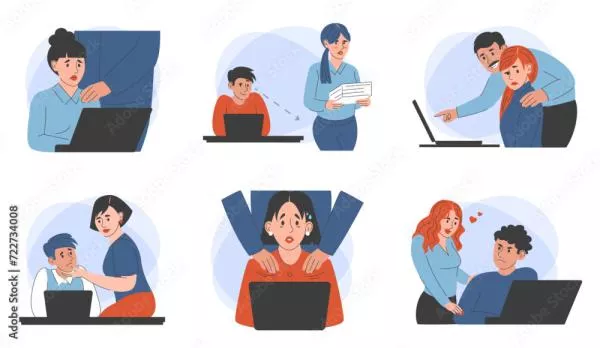
Introduction
Sexual harassment in the workplace is a serious issue that affects many women across India. To protect female employees and create a safer work environment, the Indian government introduced the Prevention of Sexual Harassment (POSH) Act, 2013. This law ensures that women can work with dignity and provides a structured mechanism for handling sexual harassment complaints at the workplace.
In this article, we'll explore:
- ✅ What the POSH Act is.
- ✅ What qualifies as sexual harassment
- ✅ Who is protected under this law
- ✅ How to file a complaint
- ✅ What actions employers must take to comply with POSH
What is the POSH Act?
The POSH Act, 2013 (Prevention of Sexual Harassment at Workplace Act) is a legal framework designed to prevent, prohibit, and redress sexual harassment at workplaces in India.
Key Highlights of the POSH Act:
- ✔️ The Act applies to all workplaces, including offices, factories, schools, colleges, and hospitals.
- ✔️ Every company with 10 or more employees must set up an internal complaints committee (ICC).
- ✔️ The law defines sexual harassment and outlines how complaints should be handled.
- ✔️ Employers must conduct awareness programs and provide training for employees and managers.
What is Considered Sexual Harassment Under POSH?
The POSH Act defines sexual harassment as any unwelcome act, whether physical, verbal, or non-verbal, including
- ✅ Physical Harassment: Unwanted touching, patting, pinching, or assault
- ✅ Verbal Harassment: Sexual jokes, comments, or explicit discussions
- ✅ Non-Verbal Harassment: Staring, leering, sending obscene messages
- ✅ Quid Pro Quo Harassment: Asking for sexual Favours in exchange for promotions, salary hikes, or job benefits
- ✅ Hostile Work Environment: Creating an intimidating or offensive work atmosphere with repeated inappropriate behaviour.
Example scenarios:
- A female employee is being forced to go on dates with her boss to secure a promotion.
- A male colleague sending sexually explicit jokes or images over WhatsApp.
- A manager making sexist comments or questioning a woman's ability to handle a role due to her gender.
Who is Covered Under the POSH Act?
The POSH Act is designed specifically to protect women in workplaces. It applies to:
- ✔ Women employees (full-time, part-time, contract workers)
- ✔ Interns and trainees (paid or unpaid)
- ✔ Freelancers and consultants
- ✔ Volunteers and temporary staff
- ✔ Domestic workers (maids, cooks, house helpers)
- ✔ Women working in government offices
- ✔ Women working in unorganized sectors (factories, construction sites, etc.)
Even if a woman is not an official employee, she can still file a complaint under POSH if the harassment happens in a professional setting.
Who is NOT Covered Under the POSH Act?
The POSH Act specifically protects women and does not cover certain categories of people. Those not included under this law are:
Men and LGBTQ+ employees:
The POSH Act applies only to women.
If a man or a transgender person faces workplace sexual harassment, they cannot file a complaint under POSH.
However, they can file complaints under other workplace laws, such as the BNS/IPC, or seek justice under their company's internal grievance policies.
Male Domestic Workers:
Male domestic workers, such as male cooks, drivers, and house staff, are not covered under POSH.
They must seek legal help under different labour laws or the BNS/IPC.
Workplaces with Fewer than 10 Employees:
Organisations with less than 10 employees do not need to form an Internal Complaints Committee (ICC).
However, women from such workplaces can approach the Local Complaints Committee (LCC) formed by the district government.
Sexual Harassment Between Two Customers or Clients (Not Employer-Employee Relationship):
The POSH Act applies only in a professional setting where an employer-employee relationship exists.
Example: If a customer harasses another customer in a café, it does not fall under POSH. Instead, the victim must file a police complaint under BNS/IPC.
Educational Institutions (Students and Teachers Conflict):
If a student harasses a teacher (or vice versa), this is not covered under POSH.
Such cases must be reported under the University Grants Commission (UGC) regulations or BNS/IPC laws.
Harassment Outside the Workplace:
The POSH Act only covers workplace harassment.
If a woman is harassed outside her job (e.g., public transport, personal social media, parks, etc.), she must file a police complaint under BNS 73(outraging modesty of a woman).
How to File a Complaint Under POSH?
If a woman experiences sexual harassment at work, she can file a complaint through the Internal Complaints Committee (ICC) within the organisation.
Step-by-Step Complaint Process:
1. Report to the Internal Complaint Committee (ICC): The complaint must be submitted in writing within 3 months of the incident.
2. Investigation by ICC: The ICC will conduct an inquiry within 90 days by hearing both sides and examining evidence.
3. Decision and action: If harassment is proven, the employer can:
- Take disciplinary action against the accused (suspension, termination, fine, etc.)
- Provide compensation to the victim
4. Appeal Option: If the woman is unhappy with the ICC's decision, she can appeal to a court within 90 days.
What if the company does NOT have an ICC?
If a company doesn't have an ICC, the victim can file a complaint with the Local Complaints Committee (LCC) formed by the government.
Responsibilities of Employers Under POSH
All organisations with 10 or more employees MUST comply with POSH by:
✔Setting up an Internal Complaints Committee (ICC)
✔Displaying the POSH policy at workplace
✔Conducting regular awareness training for employees and managers
✔Maintaining confidentiality of complaint.
✔Taking action against offenders
Failure to comply with POSH can result in:
A fine of ₹50,000 for the company
License cancellation for repeated non-compliance
Rights of Women Under the POSH Act
Women have the right to:
✅ A safe and respectful workplace
✅ File complaints confidentially
✅ Get interim relief (transfer, leave, protection from retaliation)
✅ A fair inquiry process
✅ Compensation for damages
How to Stay Safe and Take Action?
If you experience sexual harassment at work:
✔Speak up and document everything: Keep screenshots, emails, or messages as evidence.
✔Report it to HR or ICC: If your company does not take action, approach the Local Complaints Committee (LCC).
✔Seek legal help: If needed, file a police complaint or approach a labour court.
Conclusion
The POSH Act, 2013 is a crucial law that protects women from sexual harassment at work. Knowing your rights and the complaint process is essential to ensuring workplace safety. Employers must also take strict action to create a harassment-free workplace.
Comments
POSH for Healthcare Workers: What Female Doctors and Nurses Should Know.
POSH for Healthcare Workers: What Female Doctors and Nurses Should Know.
Introduction
Hospitals and healthcare facilities should be safe spaces for doctors, nurses, and medical staff. However, sexual harassment is a major issue in the healthcare industry.
Did you know?
A 2021 survey found that over 40% of female healthcare workers have faced workplace harassment.
Harassment can come from senior doctors, hospital staff, patients, or even visitors.
Many women do not report harassment due to fear of career damage or job loss.
The POSH Act, 2013 (Prevention of Sexual Harassment at Workplace Act) protects female healthcare workers by ensuring a safe, harassment-free workplace.
This article will help you understand:
- What counts as sexual harassment in hospitals.
- Your rights as a healthcare worker under POSH
- How to report harassment and take legal action
- Steps hospitals must take to prevent harassment
1. What is Considered Sexual Harassment in Healthcare?
The POSH Act defines sexual harassment as any unwelcome sexual behaviour that makes a woman feel unsafe or uncomfortable at work.
Common Forms of Sexual Harassment in Hospitals and Clinics
Harassment by Senior Doctors and Supervisors
- Making inappropriate comments or jokes.
- Asking for sexual favours in exchange for promotions or better shifts.
- Unnecessary physical contact during medical training or patient rounds.
Harassment by Patients or Visitors
- Making inappropriate comments about appearance.
- Touching nurses or doctors inappropriately.
- Repeatedly asking for personal contact details.
Workplace Discrimination and Gender Bias
- Favouring male doctors for leadership roles.
- Assigning more night shifts to female nurses unfairly.
- Ignoring complaints made by women against male colleagues.
Example: A female nurse is touched inappropriately by a patient during a check-up. When she reports it, the hospital ignores her complaint—this is a violation of the POSH Act.
2. Who is Protected Under POSH in Healthcare?
The POSH Act protects all women working in the healthcare industry, including:
- Doctors (junior and senior)
- Nurses and ward staff
- Medical interns and trainees
- Lab technicians and pharmacists
- Receptionists and administrative staff
- Female workers in private clinics and government hospitals
Even if you are an intern or temporary staff, you are legally protected under POSH.
3. How to File a POSH Complaint in a Hospital or Clinic?
Step 1: Report the Incident to the Internal Complaints Committee (ICC)
Every hospital with 10 or more employees must have an ICC to handle sexual harassment complaints.
Submit a written complaint within 3 months of the incident.
The ICC must start an inquiry within 7 days.
If your hospital does not have an ICC, you can report to the Local Complaints Committee (LCC).
Step 2: Provide Evidence (If Available)
- Medical records or CCTV footage (if the harassment happened in a monitored area).
- Text messages, emails, or chat screenshots showing inappropriate behaviour.
- Witness statements from other staff members or patients.
Step 3: ICC Investigation and Actions
The ICC must complete the inquiry within 90 days.
If harassment is proven, the hospital must take strict action against the offender.
Possible actions include:
- Suspension or termination of the harasser.
- Compensation for the victim (if financial loss occurred).
- Mandatory sexual harassment training for all staff.
Step 4: Appeal to a Labor Court (If needed)
If the ICC's decision is unfair, you can:
- Appeal in labour court within 90 days.
- File a police complaint if the harassment was severe (physical assault, stalking, threats).
4. Legal Rights of Healthcare Workers Under POSH
The POSH Act gives female doctors, nurses, and medical staff the following rights:
- Right to a Safe Workplace: Hospitals must ensure a harassment-free environment.
- Right to Confidentiality: The victim's identity must be kept secret.
- Right to Protection from Retaliation: Employers cannot fire or demote a woman for filing a POSH complaint.
- Right to Fair Investigation: The ICC must complete enquiries within 90 days.
- Right to Legal Action: If harassment is serious, victims can file an FIR with the police.
Example: A female intern is harassed by a senior doctor. She reports it to HR, but they threaten to fire her if she continues the case—this is illegal under POSH.
5. What Should Hospitals and Clinics Do to Prevent Harassment?
Under the POSH Act, every hospital and healthcare facility must take these steps:
- Set up an Internal Complaints Committee (ICC): Required for hospitals with 10+ employees.
- Conduct POSH training: All staff must attend sexual harassment prevention workshops.
- Display POSH Policies: Posters and guidelines must be visible in hospitals.
- Take Action Against Harassers: Strict action against any staff, patient, or visitor involved in harassment.
- Ensure Safe Reporting: Female employees should be able to report harassment without fear.
Example: A private hospital fails to set up an ICC. If a female doctor files a POSH complaint and no action is taken, the hospital can be fined ₹50,000 for non-compliance.
6. What to Do If Your Hospital Ignores Your POSH Complaint?
If your hospital fails to take action, you can:
- Report to theLocal Complaints Committee (LCC) in your district.
- Approach a labour court for employer non-compliance.
- File a police complaint (if the harassment involved physical assault or threats).
Example: A nurse reports harassment by a senior doctor. The ICC delays the case and takes no action. She can take the case to a labour court or LCC.
7. FAQs on POSH for Healthcare Workers
Can patients harass healthcare workers?
Yes! Patients, visitors, or attendants can be reported for harassment under POSH laws.
What if my hospital does not have an ICC?
You can file your complaint with the Local Complaints Committee (LCC).
Can I file a complaint anonymously?
No. However, your identity will be kept confidential throughout the investigation.
What if my employer retaliates after I report harassment?
Retaliation is illegal under POSH. You can take legal action in a labour court.
Can I file a POSH complaint after resigning?
Yes! Complaints must be filed within 3 months of leaving the job.
Conclusion: Protecting Healthcare Workers from Harassment
- All female doctors, nurses, and medical staff are protected under POSH.
- Every hospital must have an ICC to handle complaints.
- Victims should report harassment immediately and demand fair action.
- Employers must ensure a safe and respectful workplace.
If this article helped you, share it with fellow healthcare workers to spread awareness!
Comments
POSH for Retail and Hospitality Workers: Handling Harassment in Customer-Facing Jobs
POSH for Retail and Hospitality Workers: Handling Harassment in Customer-Facing Jobs
Introduction
Retail and hospitality industries require employees to interact with customers daily, making female workers more vulnerable to workplace sexual harassment.
Did you know?
Many female retail workers and hospitality staff face sexual harassment from customers, managers, or colleagues.
Sexual harassment can include inappropriate touching, offensive comments, or demanding favours.
The POSH Act, 2013 (Prevention of Sexual Harassment at Workplace Act) applies to all workplaces, ensuring a safe work environment.
If you work in retail or hospitality, POSH laws protect you!
This guide will help you understand:
- What counts as sexual harassment in customer-facing jobs?
- Your legal rights under POSH
- How to report harassment and seek justice
- What employers must do to protect workers
1. What is Considered Sexual Harassment at the workplace?
The POSH Act defines sexual harassment as any unwelcome sexual behaviour that makes a woman feel unsafe or uncomfortable at work or lowers her dignity just because she is a woman.
Common Forms of Workplace Harassment in Retail and Hospitality Jobs
Below are the common forms of Workplace Harassment in Retail and Hospitality Jobs:
- Harassment by Customers
- Inappropriate touching or lingering during transactions.
- Unwanted personal questions (e.g., "Are you single?").
- Demanding phone numbers or personal details.
- Making inappropriate comments about a female employee's appearance.
- Harassment by Managers or Colleagues
- Forcing employees to entertain special clients in return for good shifts or tips.
- Unwanted advances from male managers or supervisors.
- Creating a toxic work culture with sexist jokes.
- Harassment by Vendors and Delivery Partners
- Unwanted physical contact during deliveries.
- Inappropriate texts or messages from suppliers.
- Being followed or stalked after work hours.
Example: A hotel front desk employee receives inappropriate messages from a guest who got her number from the reservation system—this is workplace harassment.
2. Who is Protected Under POSH in Retail and Hospitality?
The POSH Act applies to all female workers in customer-facing jobs, including:
- Retail store employees and cashiers
- Sales associates and brand representatives
- Waitresses and restaurant staff
- Hotel front desk executives and housekeepers
- Spa and salon employees
- Flight attendants and airline staff
- Event management workers
Even if you are a part-time or temporary employee, you are legally protected under POSH.
3. How to File a POSH Complaint in Retail and Hospitality?
Step 1: Report the Incident to the Internal Complaints Committee (ICC)
Every store, hotel, restaurant, or service company with 10 or more employees must have an ICC for handling sexual harassment cases.
Submit a written complaint within 3 months of the incident.
The ICC must start an inquiry within 7 days.
If your company does not have an ICC, you can report to the Local Complaints Committee (LCC) in your district.
Step 2: Gather Evidence (If Available)
- Emails, text messages, or CCTV footage showing inappropriate behaviour.
- Photos or screenshots of offensive messages from customers or colleagues.
- Witness statements from co-workers who saw the harassment.
Example: A woman working in a shopping mall gets harassed by a customer, and security ignores her complaint—she should document the incident and report it to the ICC.
Step 3: ICC Investigation and Actions
The ICC must complete the inquiry within 90 days.
If harassment is proven, the company must take strict action against the offender.
- Banning or blacklisting the customer.
- Termination of a guilty manager or colleague.
- Filing a police complaint in serious cases.
Example: A hotel staff member is harassed by a guest but is told to "ignore it." If the ICC does not take action, she can approach the Local Complaints Committee (LCC).
Step 4: Appeal to a Labor Court (If needed)
If the ICC's decision is unfair, you can:
- Appeal in labour court within 90 days.
- File a police complaint if the harassment involved physical assault or stalking.
Example: A female sales associate reports harassment by a manager. If the ICC does not take action, she can take the case to a labour court.
4. Legal Rights of Retail and Hospitality Workers Under POSH
The POSH Act gives female employees in customer-facing jobs the following rights:
- Right to a Safe Workplace: Employers must ensure a harassment-free environment.
- Right to Confidentiality: The victim's identity must be kept secret.
- Right to Protection from Retaliation: Employers cannot fire or demote a woman for filing a POSH complaint.
- Right to Fair Investigation: The ICC must complete enquiries within 90 days.
- Right to Legal Action: If harassment is serious, victims can file an FIR with the police.
Example: A female hotel receptionist reports harassment by a guest. If HR asks her to "just be polite and accept it," she can file a legal case for inaction.
5. What Should Employers Do to Prevent Harassment in Retail and Hospitality?
Under the POSH Act, every retail and hospitality company must take these steps:
- Set up an Internal Complaints Committee (ICC): Required for businesses with 10+ employees.
- Conduct POSH training: Employees must attend sexual harassment prevention workshops.
- Monitor Customer Interactions: Employers must train security teams and managers to protect employees.
- Take Action Against Harassers: Strict action against any employee, customer, or vendor involved in harassment.
- Ensure Safe Reporting: Female employees should be able to report harassment without fear.
Example: A retail store allows customers to behave inappropriately with female employees. If reported, the company can be fined ₹50,000 for non-compliance.
6. What to Do If Your Employer Ignores Your POSH Complaint?
If your company fails to take action, you can:
- Report to the Local Complaints Committee (LCC) in your district.
- Approach a labour court for employer non-compliance.
- File a police complaint (if the harassment involved physical assault or threats).
Example: A female employee in a restaurant reports a senior chef for inappropriate behaviour. If HR ignores her complaint, she can file a case with the LCC or police.
7. FAQs on POSH for Retail and Hospitality Workers
Can customers be held responsible under POSH?
Yes! POSH laws apply to customers, guests, and vendors if they harass an employee.
What if my store or hotel does not have an ICC?
You can file your complaint with the Local Complaints Committee (LCC).
Can I file a complaint anonymously?
No. However, your identity will be kept confidential throughout the investigation.
What if my employer retaliates after I report harassment?
Retaliation is illegal under POSH. You can take legal action in a labour court.
Conclusion: Protecting Women in Retail and Hospitality Jobs
- All female employees in customer-facing jobs are protected under POSH.
- Employers must take workplace harassment seriously and act against offenders.
- Victims should report harassment immediately and demand fair action.
If this article helped you, share it with fellow employees to spread awareness!
Comments
POSH for Women in Police and Law Enforcement: Understand Workplace Protections.
POSH for Women in Police and Law Enforcement: Understand Workplace Protections.
Introduction
Women in police forces and law enforcement agencies play a crucial role in maintaining law and order. However, sexual harassment in police departments remains a serious issue.
Did you know?
Many female police officers face sexual harassment from male colleagues, senior officers, and even the public. Gender discrimination and workplace bullying are common challenges. Reporting sexual harassment can be difficult due to hierarchical power structures.
The POSH Act, 2013 (Prevention of Sexual Harassment at Workplace Act) protects women in police and law enforcement, ensuring a safe and respectful workplace.
This guide will help you understand:
- What counts as sexual harassment in police and law enforcement?
- Your legal rights under POSH
- How to report harassment and seek justice
- Steps police departments must take to protect women
1. What is Considered Sexual Harassment in Law Enforcement?
The POSH Act defines sexual harassment as any unwelcome sexual behaviour that makes a woman feel unsafe at work.
Common Forms of Sexual Harassment in Police and Law Enforcement
Harassment by Senior Officers or Colleagues
- Making sexist jokes or inappropriate comments about appearance.
- Asking for sexual favours in exchange for promotions or training opportunities.
- Unwanted physical contact during training or duty shifts.
Harassment from the Public or Criminals
- Verbal abuse and threats from criminals or detainees.
- Unwanted advances from the public during field duty.
- Stalking or inappropriate behaviour by informants or witnesses.
Gender Discrimination and Workplace Bias
- Denying promotions or field duties to female officers.
- Assigning only desk jobs instead of operational roles.
- Ignoring harassment complaints made by women.
Example: A female constable faces verbal harassment from her male senior officer but is told to "adjust" instead of filing a complaint—this is a POSH violation.
2. Who is Protected Under POSH in Law Enforcement?
The POSH Act protects all female officers and employees in law enforcement, including:
- Police constables and head constables
- Sub-inspectors and inspectors
- IPS officers (Indian Police Service)
- Women working in intelligence agencies (CBI, RAW, NIA, etc.)
- Female forensic experts, legal advisors and administrative staff;
- Police trainees, interns and contractual workers
Even if you are in training or on a temporary contract, you are legally protected under POSH.
3. How to File a POSH Complaint in a Police Department?
Step 1: Report the Incident to the Internal Complaints Committee (ICC)
Every police station, district headquarters, and law enforcement agency must have an ICC for handling sexual harassment cases. Submit a written complaint within 3 months of the incident. The ICC must start an inquiry within 7 days.
If your department does not have an ICC, you can report to the Local Complaints Committee (LCC) in your district.
Step 2: Collect Evidence (If Available)
- Audio/video recordings or CCTV footage (if the harassment happened in a monitored area).
- Text messages, emails, or chat screenshots showing inappropriate behaviour.
- Witness statements from other officers or colleagues.
Step 3: ICC Investigation and Actions
The ICC must complete the inquiry within 90 days. If harassment is proven, the department must take strict action against the offender. Possible actions include:
- suspension or termination of the accused officer.
- Compensation for the victim (if financial loss occurred).
- Mandatory sexual harassment training for all staff.
Step 4: Appeal to a Labor Court (If needed)
If the ICC's decision is unfair, you can:
- Appeal in labour court within 90 days.
- File a police complaint if the harassment involved physical assault or threats.
Example: A female officer is groped by a senior inspector during a training session. She files a complaint, but the ICC dismisses it without proper investigation—she can take the case to a labour court.
4. Legal Rights of Women in Law Enforcement Under POSH
The POSH Act gives female police officers and law enforcement employees the following rights:
- Right to a Safe Workplace: Police departments must ensure a harassment-free environment.
- Right to Confidentiality: The victim's identity must be kept secret.
- Right to Protection from Retaliation: Employers cannot fire or demote a woman for filing a POSH complaint.
- Right to Fair Investigation: The ICC must complete enquiries within 90 days.
- Right to Legal Action: If harassment is serious, victims can file an FIR with the police.
Example: A female SI (sub-inspector) files a harassment complaint against a DSP (Deputy Superintendent of Police). If she faces job transfer as punishment, she can appeal for wrongful retaliation.
5. What Should Police Departments Do to Prevent Harassment?
Under the POSH Act, every law enforcement agency must take these steps:
- Set up an Internal Complaints Committee (ICC): required for all police stations with 10+ employees.
- Conduct POSH training: Officers and staff must attend sexual harassment prevention workshops.
- Display POSH Policies: Posters and guidelines must be visible in all police stations.
- Take Action Against Harassers: Strict action against any officer, junior, or senior involved in harassment.
Ensure Safe Reporting: Female officers should be able to report harassment without fear.
Example: If a police department fails to set up an ICC, it can be fined ₹50,000 for non-compliance.
6. What to Do If Your Department Ignores Your POSH Complaint?
If your police department fails to take action, you can:
- Report to the Local Complaints Committee (LCC) in your district.
- Approach a labour court for employer non-compliance.
- File a police complaint (if the harassment involved physical assault or threats).
Example: A female ACP (Assistant Commissioner of Police) reports harassment by a superior. If the ICC delays the case and takes no action, she can take the case to a labour court or LCC.
7. FAQs on POSH for Women in Law Enforcement
Can the POSH Act be used against senior police officers?
Yes! The law applies to all employees, including top-ranking officers.
What if my department does not have an ICC?
You can file your complaint with the Local Complaints Committee (LCC).
Can I file a complaint anonymously?
No. However, your identity will be kept confidential throughout the investigation.
What if my employer retaliates after I report harassment?
Retaliation is illegal under POSH. You can take legal action in a labour court.
Can I file a POSH complaint after resigning?
Yes! Complaints must be filed within 3 months of leaving the job.
Conclusion: Protecting Women in Law Enforcement from Harassment
- All female police officers and law enforcement staff are protected under POSH.
- Every police department must have an ICC to handle complaints.
- Victims should report harassment immediately and demand fair action.
- Employers must ensure a safe and respectful workplace.
If this article helped you, share it with fellow officers to spread awareness!
Comments
Sexual Harassment in Virtual Workplaces: How the POSH Act Covers Online Harassment.
Sexual Harassment in Virtual Workplaces: How the POSH Act Covers Online Harassment.
Introduction
With the rise of remote work, virtual meetings, and online collaboration, workplace interactions have shifted to emails, video calls, chat platforms, and social media. While this has made work more flexible, it has also introduced new challenges- including sexual harassment in digital spaces.
Many people assume that POSH (Prevention of Sexual Harassment at Workplace) laws apply only to physical offices, but that is not true. The POSH Act, 2013, applies to all workplaces, including virtual workplaces.
This article explains how the POSH Act protects employees from online harassment, the different forms of virtual harassment, and what employees should do if they face harassment while working remotely.
1. Does the POSH Act Cover Online Sexual Harassment?
Yes! The POSH Act, 2013, does not limit workplace harassment to physical offices. The Act states that sexual harassment can occur "in connection with work," which includes remote work, online interactions, and virtual meetings.
- If an employee faces unwelcome sexual advances, inappropriate messages, or verbal harassment via email, chat, or video calls, it still counts as workplace sexual harassment.
- If an employee is harassed by a colleague, manager, client, or vendor through digital platforms, they have the right to file a POSH complaint.
In today's digital world, harassment doesn't require physical presence- if it makes a person uncomfortable, it is a violation of the law.
2. What is Considered Online Sexual Harassment in the Workplace?
Sexual harassment in virtual workplaces can take many forms. The most common types include:
A. Inappropriate Messages and Emails
- Sending sexually suggestive messages, texts, or emails.
- Making inappropriate comments about someone's appearance or personal life.
- Sharing double-meaning jokes or sexually explicit content via email or chat.
- Persistently asking personal or sexual questions in work-related chats.
Example: A manager keeps sending personal messages to a female employee on WhatsApp, asking her to "send a picture" or "meet outside work."
B. Unwelcome Advances on Video Calls
- Making inappropriate sexual comments during Zoom/Teams meetings.
- Staring at someone in a way that makes them uncomfortable.
- Adjusting the camera to show inappropriate gestures or body language.
- Insisting that a colleague turn on their camera unnecessarily to observe them.
- Using virtual backgrounds, filters, or stickers in a sexually suggestive manner.
Example: A male colleague keeps making inappropriate jokes about how a female coworker "looks great on video" and should "dress up more often for Zoom calls."
C. Cyberstalking and Unwanted Attention
- Monitoring someone's online activity without their consent.
- Repeatedly calling, texting, or emailing outside work hours despite clear discomfort.
- Adding a coworker to personal social media platforms without consent and sending inappropriate messages.
Example: A coworker constantly watches when a female employee is "online" on Microsoft Teams and messages her at odd hours, even when she is not working.
D. Sharing Inappropriate or Explicit Content
- Sending pornographic images, videos, or links to colleagues.
- Displaying sexually explicit wallpapers or desktop backgrounds during screen sharing.
- Sending inappropriate GIFs or memes in workplace group chats.
Example: During a work meeting, an employee "accidentally" shares an explicit image or video while screen-sharing, making others uncomfortable.
E. Coercion and Quid Pro Quo Harassment
- "Work favours" in exchange for personal favours (e.g., promotions or salary hikes).
- Threatening to deny work opportunities unless personal requests are fulfilled.
- Using remote work as an excuse to create one-on-one online meetings for inappropriate discussions.
Example: A manager tells a junior female employee that he will "recommend her for a promotion" if she agrees to a private video call after work hours.
3. How to Report Online Sexual Harassment Under the POSH Act?
If you experience online sexual harassment, you have the right to report it under the POSH Act. Here's how:
- Collect Evidence: Save screenshots of inappropriate messages, emails, chat logs, or video recordings. If harassment happened on a video call, take screenshots or note timestamps. Record the date, time, and context of the incident.
- Report to HR or the Internal Complaints Committee (ICC): Every company with 10 or more employees must have an Internal Complaints Committee (ICC) under POSH. File a written complaint to the ICC with details of the harassment. Ask for temporary measures (such as restricting the harasser's access to work platforms).
- ICC Investigation and Action: The ICC will review the complaint, question both parties, and examine the evidence. The inquiry must be completed within 90 days. If the accused is found guilty, the ICC can recommend warnings, suspension, or termination. If necessary, the case can be escalated to the police under BNS/IPC laws.
4. What Can Organisations Do to Prevent Online Harassment?
Employers are legally responsible for providing a safe digital workspace. Companies should:
- Update POSH Policies: Clearly mention that online harassment is covered under workplace harassment laws.
- Train Employees on Virtual Workplace Etiquette: Conduct POSH training focusing on digital workplace conduct.
- Monitor workplace Platforms: Set strict guidelines for emails, work chats, and video calls.
- Encourage a Speak-Up Culture: Employees should feel safe to report harassment without fear of retaliation.
- Ensure Swift Action: ICCs should handle online harassment cases as seriously as physical harassment cases.
5. How Employees Can Protect Themselves from Online Harassment
If you are working remotely, follow these steps to stay safe:
- Keep Work and Personal Life Separate: Avoid sharing personal numbers or social media with colleagues unless necessary.
- Set Boundaries in Virtual Meetings: If a conversation feels inappropriate, exit the meeting immediately.
- Block and Report Harassers: If someone misuses work communication platforms, report them to HR.
- Know Your Rights: Educate yourself about the POSH Act and workplace harassment policies.
Final Thoughts
Sexual harassment doesn't just happen in offices- it can also occur in emails, video calls, and work chats. The POSH Act covers online workplace harassment, ensuring employees are protected even in virtual workspaces.
If you face harassment while working remotely, speak up and report it. Keep evidence, inform HR, and file a complaint under POSH. Employers must create a zero-tolerance policy for digital harassment.
A safe workplace- whether physical or virtual- is a basic right for every employee. By understanding and enforcing POSH laws, we can ensure a harassment-free and professional remote work environment.
Comments
Step-by-Step Guide to Filing a Sexual Harassment Complaint Under POSH in India.
Step-by-Step Guide to Filing a Sexual Harassment Complaint Under POSH in India.
Introduction
Sexual harassment in the workplace is a serious violation of a woman's right to work with dignity. To protect working women, the Indian government introduced the Prevention of Sexual Harassment (POSH) Act, 2013.
Under this law, every woman has the right to report workplace sexual harassment without fear. However, many women are unsure about how to file a complaint or what to do if their employer does not take action. In this guide, we will explain:
- ✔ What counts as sexual harassment
- ✔ Who can file a POSH complaint
- ✔ How to file a sexual harassment complaint step by step
- ✔ What happens after a complaint is filed
- ✔ What to do if your employer does not take action
What is Considered Sexual Harassment Under POSH?
The POSH Act defines sexual harassment as any unwelcome sexual behaviour that makes a woman feel uncomfortable or unsafe at work.
Examples of sexual harassment at work:
- ✅ Physical Harassment: Unwanted touching, groping, or physical advances.
- ✅ Verbal harassment: sexually coloured jokes, inappropriate comments, or lewd remarks.
- ✅ Non-verbal harassment: staring, sending obscene images, or messages.
- ✅ Quid Pro Quo Harassment: Asking for sexual favours in exchange for promotions, salary hikes, or job benefits.
- ✅ Hostile Work Environment: repeated sexual jokes, offensive comments, or suggestive gestures that make the workplace unsafe.
Example: If a female employee constantly receives inappropriate texts from her manager, this is sexual harassment, even if she does not respond.
Who Can File a Sexual Harassment Complaint?
The POSH Act protects all working women, including
- ✔ Full-time and part-time employees;
- ✔ Interns and trainees (paid or unpaid);
- ✔ Freelancers and consultants;
- ✔ Contract workers;
- ✔ Volunteers and temporary staff;
- ✔ Domestic workers (maids, cooks, house helpers)
Even if a woman is not a permanent employee, she still has the right to file a POSH complaint if the harassment happens at work.
How to File a Sexual Harassment Complaint? (Step-by-Step Process)
Step 1: Write a Complaint Letter to the Internal Complaints Committee (ICC)
Every company with 10 or more employees must have an Internal Complaints Committee (ICC) to handle sexual harassment complaints. The complaint must be in writing and submitted within 3 months of the incident. If the harassment is ongoing, the 3-month limit can be extended by the ICC.
How to Write a Complaint?
- Mention your name, job role, and workplace details.
- Clearly describe the harassment incident (date, time, place).
- Provide evidence (screenshots, emails, chat messages, witnesses).
- Mention if you have spoken to HR or anyone else about this issue before.
- Request the ICC to take action and ensure your safety.
Step 2: ICC Investigates the Complaint
The ICC must begin an inquiry within 7 days of receiving the complaint. The accused (harasser) will be given a chance to respond. The ICC may interview witnesses or ask for more evidence.
Important:
- The victim's identity remains confidential—the company cannot disclose her name.
- The inquiry process must be completed within 90 days.
Step 3: ICC's Decision and Actions Taken
Once the investigation is complete, the ICC can:
- Punish the offender (warning, suspension, salary cut, termination).
- Compensate the victim for mental distress, job loss, or medical expenses.
- Recommend workplace changes to prevent future harassment.
The final report must be submitted to the employer and the victim within 10 days after the investigation ends.
Step 4: Appeal If You Are Not Satisfied with the ICC's Decision
If the victim is unhappy with the ICC's decision, she can:
- File an appeal in a labour court or tribunal within 90 days.
- Approach the Local Complaints Committee (LCC) if the company does not have an ICC.
- File a police complaint under BNS Section 73 or 78/IPC Section 354 or 509 for serious offences.
Example: If a company ignores a harassment complaint or lets the accused go unpunished, the victim can escalate the case to legal authorities.
What If My Employer Does Not Have an ICC?
If your company does not have an Internal Complaints Committee (ICC), you can:
- Report the harassment to the Local Complaints Committee (LCC) in your district.
- Approach the National Commission for Women (NCW) or a labour court.
- File an FIR with the police under criminal laws.
Penalty for Companies That Don't Follow POSH: Fine of ₹50,000 for first-time violations. License cancellation for repeated violations.
Women's Rights Under POSH: What Protection Do You Get?
Women have the right to:
- a safe and harassment-free workplace.
- confidentiality throughout the complaint process.
- Request paid leave or a job transfer during the inquiry.
- Legal action if the company does not act on the complaint.
FAQs on Filing a Sexual Harassment Complaint
- ❓ Can I file a complaint anonymously? No. The complaint must be in writing, but your identity will remain confidential throughout the process.
- ❓ What if my manager threatens me after I file a complaint? Retaliation is illegal. If you are fired, demoted, or threatened, you can file a separate case for employer misconduct.
- ❓ Can I file a complaint if the harassment happened outside office hours? Yes! If the harassment was by a co-worker, boss, or client in a professional setting, it still counts under POSH.
- ❓ Can I take legal action if the ICC does not support me? Yes. If the ICC's decision is unfair, you can appeal in labour court within 90 days.
- ❓ What if the harassment was online (social media, WhatsApp, email)? Even digital sexual harassment (explicit texts, inappropriate video calls, etc.) is covered under POSH, and you can file a complaint.
Conclusion
The POSH Act is a powerful law that helps women take action against sexual harassment at work. If you or someone you know is facing workplace harassment, follow the complaint process and demand justice.
Key Takeaways:
- ✔ Workplaces must have an Internal Complaints Committee (ICC).
- ✔ Complaints must be filed in writing within 3 months.
- ✔ The ICC must complete investigations within 90 days.
- ✔ Women can appeal in court if the ICC does not take proper action.
- ✔ Companies that fail to follow POSH can face heavy penalties.
📢 Every woman should know her rights under POSH. Share this guide to spread awareness!
Comments
The Importance of Training Employees on Workplace Harassment
The Importance of Training Employees on Workplace Harassment
In today's fast-paced, ever-evolving business environment, workplace harassment remains one of the most significant challenges organisations face. Despite advancements in corporate policies and societal awareness, harassment still occurs, affecting not only the individuals directly involved but also the broader organisational culture. This is why providing regular and comprehensive training on workplace harassment is more than just a checkmark on a compliance list—it's a proactive investment in the health, safety, and success of your workforce.
Understanding Workplace Harassment
Workplace harassment refers to a wide array of inappropriate behaviours, which can be verbal, physical, or psychological in nature, creating a hostile, intimidating, or offensive work environment. These behaviours may stem from biases related to race, gender, religion, sexual orientation, age, disability, or other protected characteristics. However, harassment isn't always blatant. Subtle forms—such as microaggressions, offhand comments, or exclusionary behaviours—can be just as damaging and are often overlooked without proper education.
Many employees, especially those new to the workforce or unfamiliar with corporate protocols, may not fully understand what constitutes harassment. This lack of awareness can result in people unknowingly engaging in or tolerating harmful behaviours, allowing toxicity to seep into the workplace. By offering targeted training, organisations can ensure that every individual understands the nuances of workplace harassment, recognises inappropriate conduct, and knows how to respond effectively.
Why Workplace Harassment Training Matters
1. Ensuring Legal Compliance
In many jurisdictions, businesses are legally required to provide harassment training to employees. These laws are designed to protect workers from abusive or discriminatory behaviour and hold employers accountable for the work environment they foster. Failing to comply with these mandates can lead to severe consequences, including fines, lawsuits, and reputational damage. More importantly, legal compliance isn't just about avoiding penalties—it's about demonstrating a company's commitment to fair and equitable treatment for all.
2. Promoting Awareness and Empowerment
One of the most crucial aspects of harassment training is education. Through training programs, employees learn what harassment looks like in various forms, understand its consequences, and recognise their role in preventing it. Training empowers employees to speak up, whether they are the target of harassment or a witness to it. This creates a sense of shared responsibility, fostering a culture where inappropriate behaviours are identified and addressed before they escalate.
Furthermore, when employees are equipped with the right tools and knowledge, they feel more confident navigating complex interpersonal situations. This empowerment extends beyond harassment issues, promoting open communication and mutual respect across the board.
3. Cultivating a Respectful Workplace Culture
Regular training sends a powerful message that harassment of any kind will not be tolerated and that the organisation is committed to maintaining a respectful, inclusive environment. This consistent reinforcement shapes the workplace culture, establishing clear behavioural expectations for everyone.
A respectful workplace isn't just beneficial for preventing harassment—it enhances collaboration, boosts morale, and fosters innovation. When employees feel safe and respected, they are more likely to engage fully in their roles, share ideas freely, and support their colleagues, all of which contribute to the organisation's overall success.
4. Protecting Employee Well-Being
The psychological and emotional toll of harassment can be profound. Victims often experience anxiety, stress, depression, and decreased job satisfaction, which can lead to higher turnover rates, absenteeism, and lost productivity. By prioritising harassment training, companies can prevent these negative outcomes, demonstrating their genuine care for employee well-being.
Beyond preventing harassment, such training provides a supportive space where employees can learn about the resources available to them—such as HR contacts, reporting systems, and counselling services. Knowing that the organisation has their back fosters trust and encourages employees to seek help when needed.
5. Reducing Organizational Liability
While the moral imperative to prevent harassment should be enough motivation, there's also a practical consideration—limiting organisational risk. When harassment occurs and a company fails to take appropriate preventive or corrective measures, it can face serious legal and financial repercussions. Comprehensive training programs help demonstrate that the organisation took reasonable steps to prevent harassment, which can mitigate liability in legal proceedings.
Moreover, a company that actively works to prevent harassment reduces the likelihood of costly lawsuits, damaged reputations, and strained relationships with clients, customers, and partners.
Implementing Effective Harassment Training
For harassment training to be effective, it must be more than a one-time presentation or a set of slides employees click through. It should be interactive, engaging, and tailored to reflect the realities of the organisation's work environment. Incorporating real-world scenarios, role-playing exercises, and open discussions allows employees to apply what they've learnt and encourages them to think critically about their own behaviour and workplace dynamics.
Additionally, harassment training should be continuous, not just a once-a-year requirement. Refreshers, updates on legal changes, and ongoing conversations about respect, inclusion, and diversity help keep the topic relevant and top of mind.
Final Thoughts
At its core, workplace harassment training is about fostering a work environment where every individual feels safe, respected, and valued. It's about building a culture of accountability and empathy, where people are empowered to stand up against inappropriate behaviour and support one another.
By investing in comprehensive, ongoing training, organisations not only protect their employees and comply with legal standards but also strengthen their overall culture and performance. A workplace free from harassment is one where people can thrive, contribute fully, and drive collective success.
Comments
Types of Sexual Harassment at the Workplace: Understanding Physical, Verbal, and Non-Verbal Misconduct.
Types of Sexual Harassment at the Workplace: Understanding Physical, Verbal, and Non-Verbal Misconduct.
Introduction
Sexual harassment in the workplace is a serious violation of a woman's right to work with dignity. To protect working women, the Indian government introduced the Prevention of Sexual Harassment (POSH) Act, 2013.
Under this law, every woman has the right to report workplace sexual harassment without fear. However, many women are unsure about how to file a complaint or what to do if their employer does not take action. In this guide, we will explain:
- What counts as sexual harassment
- Who can file a POSH complaint
- How to file a sexual harassment complaint step by step
- What happens after a complaint is filed
- What to do if your employer does not take action
What is Considered Sexual Harassment Under POSH?
The POSH Act defines sexual harassment as any unwelcome sexual behaviour that makes a woman feel uncomfortable or unsafe at work.
Examples of sexual harassment at work:
- Physical Harassment: Unwanted touching, groping, or physical advances.
- Verbal harassment: sexually coloured jokes, inappropriate comments, or lewd remarks.
- Nonverbal harassment: staring, sending obscene images or messages.
- Quid Pro Quo Harassment: Asking for sexual favours in exchange for promotions, salary hikes, or job benefits.
- Hostile Work Environment: repeated sexual jokes, offensive comments, or suggestive gestures that make the workplace unsafe.
Example: If a female employee constantly receives inappropriate texts from her manager, this is sexual harassment, even if she does not respond.
Who Can File a Sexual Harassment Complaint?
The POSH Act protects all working women, including
- Full-time and part-time employees;
- Interns and trainees (paid or unpaid);
- Freelancers and consultants;
- Contract workers;
- Volunteers and temporary staff;
- Domestic workers (maids, cooks, house helpers)
Even if a woman is not a permanent employee, she still has the right to file a POSH complaint if the harassment happens at work.
How to File a Sexual Harassment Complaint? (Step-by-Step Process)
Step 1: Write a Complaint Letter to the Internal Complaints Committee (ICC)
Every company with 10 or more employees must have an Internal Complaints Committee (ICC) to handle sexual harassment complaints. The complaint must be in writing and submitted within 3 months of the incident. If the harassment is ongoing, the 3-month limit can be extended by the ICC.
How to Write a Complaint?
- Mention your name, job role, and workplace details.
- Clearly describe the harassment incident (date, time, place).
- Provide evidence (screenshots, emails, chat messages, witnesses).
- Mention if you have spoken to HR or anyone else about this issue before.
- Request the ICC to take action and ensure your safety.
Step 2: ICC Investigates the Complaint
The ICC must begin an inquiry within 7 days of receiving the complaint. The accused (harasser) will be given a chance to respond. The ICC may interview witnesses or ask for more evidence.
Important:
- The victim's identity remains confidential—the company cannot disclose her name.
- The inquiry process must be completed within 90 days.
Step 3: ICC's Decision and Actions Taken
Once the investigation is complete, the ICC can:
- Punish the offender (warning, suspension, salary cut, termination).
- Compensate the victim for mental distress, job loss, or medical expenses.
- Recommend workplace changes to prevent future harassment.
The final report must be submitted to the employer and the victim within 10 days after the investigation ends.
Step 4: Appeal If You Are Not Satisfied with the ICC's Decision
If the victim is unhappy with the ICC's decision, she can:
- File an appeal in a labour court or tribunal within 90 days.
- Approach the Local Complaints Committee (LCC) if the company does not have an ICC.
- File a police complaint under BNS Section 73 or 78 IPC Section 354 or 509 for serious offences.
Example: If a company ignores a harassment complaint or lets the accused go unpunished, the victim can escalate the case to legal authorities.
What If My Employer Does Not Have an ICC?
If your company does not have an Internal Complaints Committee (ICC), you can:
- Report the harassment to the Local Complaints Committee (LCC) in your district.
- Approach the National Commission for Women (NCW) or a labour court.
- File an FIR with the police under criminal laws.
Penalty for Companies That Don't Follow POSH: A fine of ₹50,000 for first-time violations. License cancellation for repeated violations.
Women's Rights Under POSH: What Protection Do You Get?
Women have the right to:
- a safe and harassment-free workplace.
- confidentiality throughout the complaint process.
- Request paid leave or a job transfer during the inquiry.
- Legal action if the company does not act on the complaint.
FAQs on Filing a Sexual Harassment Complaint
- Can I file a complaint anonymously? No. The complaint must be in writing, but your identity will remain confidential throughout the process.
- Can I file a complaint if the harassment happened outside office hours? Yes! If the harassment was by a co-worker, boss, or client in a professional setting, it still counts under POSH.
- Can I take legal action if the ICC does not support me? Yes. If the ICC's decision is unfair, you can appeal in labour court within 90 days.
- What if the harassment was online (social media, WhatsApp, email)? Even digital sexual harassment (explicit texts, inappropriate video calls, etc.) is covered under POSH, and you can file a complaint.
Conclusion
The POSH Act is a powerful law that helps women take action against sexual harassment at work. If you or someone you know is facing workplace harassment, follow the complaint process and demand justice.
Key Takeaways:
- Workplaces must have an Internal Complaints Committee (ICC).
- Complaints must be filed in writing within 3 months.
- The ICC must complete investigations within 90 days.
- Women can appeal in court if the ICC does not take proper action.
- Companies that fail to follow POSH can face heavy penalties.
Every woman should know her rights under POSH. Share this guide to spread awareness!
Comments
Understanding Workplace Retaliation: How to Protect Yourself After Reporting Harassment.
Understanding Workplace Retaliation: How to Protect Yourself After Reporting Harassment.
Introduction
Many women hesitate to report workplace harassment because they fear retaliation from their employers, colleagues, or even clients.
Retaliation happens when an employer punishes an employee for speaking up against harassment or discrimination.
Common retaliation tactics include:
- Job termination
- Salary reduction or denial of promotion
- Unfair performance reviews
- Bullying, isolation, or verbal abuse
The good news? Retaliation is illegal under the POSH Act, 2013 and Indian labour laws. Employers cannot punish employees for filing a complaint.
This article will help you:
- Identify workplace retaliation
- Understand your legal rights
- Take action if your employer retaliates.
- Protect yourself after filing a POSH complaint
What is Workplace Retaliation?
Retaliation is any negative action taken against an employee after they report workplace harassment or discrimination.
Examples of Workplace Retaliation:
- Job-Related Retaliation: Getting fired, demoted, or transferred after filing a complaint. Being denied a promotion or salary hike for reporting harassment.
- Workplace Harassment: Colleagues or managers spreading false rumours. Being ignored in meetings or excluded from projects.
- Psychological Pressure: Employer forcing the victim to withdraw the complaint. Creating a hostile work environment to make the victim quit.
Example: A female IT employee files a POSH complaint against a senior manager. A month later, she gets a poor performance review and is denied a promotion—this is workplace retaliation.
How to Recognise Retaliation?
If you notice sudden changes in your work environment after filing a complaint, you may be facing retaliation.
Ask Yourself These Questions:
- Was I denied an expected raise or promotion after my complaint?
- Am I being treated unfairly compared to my colleagues?
- Did my employer or colleagues start treating me differently?
- Do I feel isolated, bullied, or threatened at work?
Legal Protection Against Workplace Retaliation
What Does the Law Say?
- The POSH Act, 2013, states that victims of workplace harassment cannot be punished for filing a complaint.
- Indian labour laws protect employees from unfair termination and workplace discrimination.
Legal Consequences for Retaliation:
- Employers can be fined ₹50,000 for POSH non-compliance.
- Victims can file a labour court case for wrongful termination.
- The employer may be forced to reinstate the employee with back pay.
Example: A female banker reports her male team lead for inappropriate comments. The bank transfers her to a less prestigious branch. She can file a case in labour court for wrongful transfer.
How to Protect Yourself After Reporting Harassment
Step 1: Document Everything
- Save emails, texts, or messages showing retaliation.
- Keep copies of performance reviews and work reports.
- Record any conversations with HR or managers.
Example: If your employer cuts your salary after filing a complaint, keep records of previous salary slips as proof.
Step 2: Seek HR and Internal Support
- Report retaliation to HR in writing.
- Ask for a review of unfair job decisions (like demotions or pay cuts).
- Request HR to investigate any workplace bullying or isolation.
Example: A female journalist reports sexual harassment by a senior editor. Afterward, she is given fewer assignments. She should submit a written complaint to HR for job discrimination.
Step 3: Approach the Local Complaints Committee (LCC)
- If the company ignores retaliation complaints, report the case to the LCC in your district.
- The LCC can conduct an independent investigation.
Example: If an employer forces an employee to resign after a POSH complaint, she can report the case to the LCC for legal action.
Step 4: File a Case in Labour Court
- If HR or the LCC fails to take action, file a wrongful termination or discrimination case in labour court.
- Courts can fine employers and order them to reinstate the employee.
Example: A female school teacher is fired after reporting harassment by the principal. She can file a case for wrongful termination under labour laws.
Step 5: File a Police Complaint (If Necessary)
- If retaliation involves threats, stalking, or physical harm, file an FIR under IPC laws.
Example: If a victim receives threatening calls from the harasser, she can file an FIR for criminal intimidation.
Workplace Retaliation in Different Industries: Sector-Specific Challenges
- IT and Corporate Jobs: Fear of job loss due to hierarchy. HR teams may side with senior managers. Tip: Keep detailed email records and project assignments to prove unfair treatment.
- Healthcare (Doctors, Nurses, Medical Staff): Workplace harassment by senior doctors or patients. Fear of career damage for reporting harassment. Tip: Report to the hospital ICC or medical association for additional support.
- Education (Teachers, Professors, School Staff): Harassment from senior faculty or administrators. Fear of losing tenure or job security. Tip: Seek support from women's rights groups or education unions.
- Banking and Finance: A male-dominated work culture can discourage reporting. Women may be sidelined from important projects. Tip: Consult a labour lawyer for wrongful demotion or project removal.
- Media and Entertainment: Fear of being blacklisted in the industry. Lack of proper HR mechanisms.
- Tip: File complaints with industry bodies like the National Commission for Women (NCW).
What Should You Do If You're Facing Retaliation?
- Report retaliation to HR in writing.
- Document all proof (emails, reviews, salary slips).
- Approach the Local Complaints Committee (LCC) if HR does not act.
- File a labour court case for wrongful termination or discrimination.
- Seek legal help if needed (women's rights organisations, labour lawyers).
Retaliation is illegal! Every woman has the right to a safe workplace without fear.
FAQs on Workplace Retaliation
Can my employer fire me for reporting harassment?
No! Your employer can not fire you for reporting harassment.
What if my HR team does not support me?
File a complaint with the Local Complaints Committee (LCC) or labour court.
Can I file a police complaint for workplace retaliation?
Yes! If the retaliation involves threats, stalking, or intimidation, file an FIR under IPC laws.
Can I file a case if my employer reduces my salary after a POSH complaint?
Yes! But unfortunately, if you file a case against your employer, it will take a very long time for the case to end. So, before filing a case, you should report the matter to the local authorities.
Comments
Understanding Your Legal Options: Can You Take Your POSH Case to Court?
Understanding Your Legal Options: Can You Take Your POSH Case to Court?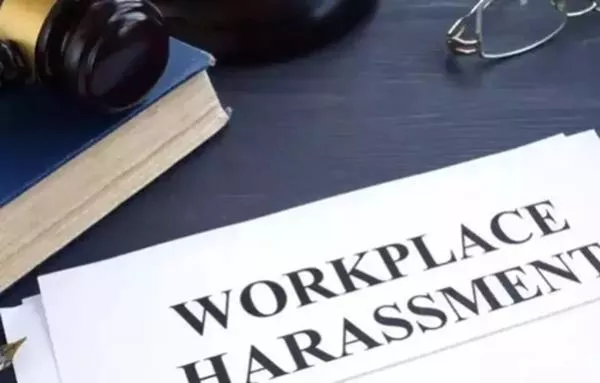
If you have faced sexual harassment at work and filed a complaint under the POSH (Prevention of Sexual Harassment) Act, 2013, you expect a fair investigation and resolution. But what if the Internal Complaints Committee (ICC) dismisses your complaint? Or what if you are unhappy with the decision?
The good news is you have legal options. The POSH Act allows you to take your case to court if:
- Your complaint is ignored by your employer.
- The ICC makes an unfair decision.
- You face retaliation (like demotion or job loss) for filing a complaint.
This guide explains how and when you can take your POSH case to court, what legal options are available, and how the court process works.
When Can You Take a POSH Case to Court?
Below are the points of when can you take a POSH Case to Court:
1. If You Are Not Satisfied with the ICC's Decision
- If the ICC dismisses your complaint unfairly.
- If the bias affects the investigation.
- If the punishment given to the harasser is too mild.
Example: If a woman complains about continuous harassment by a senior manager, but the ICC only gives him a verbal warning, she can appeal in court for stricter punishment.
2. If Your Employer Ignores Your Complaint
- If your company does not have an ICC(which is illegal).
- If the ICC fails to respond within 90 days.
- If the employer does not act on the ICC's recommendations.
Example: If a company fails to fire an employee found guilty of sexual harassment, the victim can file a legal case in labour court.
3. If You Face Retaliation After Filing a Complaint
- Retaliation is illegal under POSH.
- If you are fired, demoted, transferred, or harassed for complaining, you can take legal action.
Example: If a woman loses her job after complaining about her boss, she can sue the company for wrongful termination.
4. If the Harassment Involves a Criminal Offense
- Serious harassment cases (physical assault, threats, stalking) can be taken to criminal court.
- You can file a police complaint under IPC laws along with your POSH case.
Example: If an employee is sexually assaulted at work, she should file an FIR under IPC Section 354 and also report it under POSH.
Which Court Can You Approach for a POSH Case?
These are the courts where you can approach if you want to file a complaint of POSH:
High Court (For POSH Act Violations)
- If the employer does not follow the ICC's decision, you can file a writ petition in the High Court.
- High Courts can penalise companies that fail to implement POSH laws.
Criminal Court (For Serious Harassment Cases)
- If the harassment involves obscene behaviour, threats, or stalking, you can file an FIR and take the case to criminal court.
- The police will investigate and the case will be heard under Indian Penal Code (IPC) laws.
Legal Options for Taking a POSH Case to Court
Situation | Legal Action | Where to File the Case? |
|---|---|---|
| ICC dismisses your complaint unfairly | Appeal against the ICC's decision | high court (within 90 days) |
| Employer ignores POSH complaints | File a non-compliance case | High Court |
| Wrongful termination or retaliation | File a wrongful dismissal case | Labour Court |
| Sexual assault, threats, or stalking | File a criminal complaint | Criminal Court (via FIR) |
| Employer fails to implement ICC's decision | File a legal notice | High Court |
How to File a POSH Case in Court (Step-by-Step Process)
Follow the below steps to file a POSH Case in Court:
Step 1: Collect Evidence
- Save all written complaints, ICC reports, emails, and WhatsApp messages.
- Keep witness statements (if any colleagues saw or heard the harassment).
- Gather medical reports (if there was physical harm).
Example: If an ICC dismisses a case unfairly, but the victim has chat messages proving harassment, she can present them as evidence in court.
Step 2: File an Appeal Against the ICC's Decision
- If the ICC's verdict is unfair or weak, file an appeal in court.
- A lawyer can help prepare legal documents for the case.
Example: If a woman is unhappy with a minor punishment given to her harasser, she can demand a stronger penalty in labour court.
Step 3: Approach the High Court for POSH Non-Compliance
- If the employer ignores the ICC's decision, file a writ petition in the High Court.
- The court can penalise the employer and enforce action.
Example: If an ICC finds a senior executive guilty, but the company refuses to fire him, the victim can take the case to the High Court.
Step 4: File a Police Complaint for Criminal Harassment
- If the harassment involves physical abuse, threats, or stalking, file a First Information Report (FIR) at the nearest police station.
- The case will be handled under Indian Penal Code (IPC) laws.
IPC Section for Sexual Harassment Cases:
IPC Section | Crime | Punishment |
|---|---|---|
| IPC 354 | Outraging a woman's modesty (unwanted physical advances, groping) | 1 to 5 years imprisonment |
| IPC 354A | Sexual harassment (verbal remarks, inappropriate touch) | Up to 3 years imprisonment |
| IPC 354D | Stalking (online or in person) | Up to 3 years imprisonment |
| IPC 509 | Using words or gestures to insult a woman | Up to 1 year imprisonment |
Conclusion
If your POSH complaint is ignored or unfairly dismissed, you have the right to take legal action. The Indian legal system protects victims of workplace harassment, and courts can order strict penalties against offenders and negligent employers.
Key Takeaways:
- You can appeal against an ICC decision in labour court within 90 days.
- If an employer ignores POSH laws, you can take them to the High Court.
- Criminal harassment cases should be reported to the police under IPC laws.
- Strong evidence (emails, messages, CCTV footage) helps build a legal case.
Workplace harassment is illegal-every woman deserves justice! Share this article to spread awareness.
FAQs on Taking a POSH Case to Court
- How long do I have to appeal against an ICC decision?
You must file an appeal within 90 days in labour court. - Can I file both a POSH complaint and an IPC case?
Yes! You can simultaneously file a workplace harassment case (POSH) and a criminal case (IPC). - What happens if the employer refuses to follow the ICC's recommendations?
The employer can be fined ₹50,000 or more and face legal action in High Court. - Do I need a lawyer to take a POSH case to court?
It is not mandatory, but having a lawyer improves your chances of getting justice.
Comments
Understanding the Internal Complaints Committee (ICC) and Its Role in Preventing Workplace Harassment
Understanding the Internal Complaints Committee (ICC) and Its Role in Preventing Workplace Harassment
What Is the Internal Complaints Committee (ICC)?
The Internal Complaints Committee (ICC) is a body set up within an organization to address complaints related to sexual harassment at the workplace. It is a legal requirement for all organizations with more than 10 employees to have an ICC to provide a safe and supportive environment for employees.
Why Does It Matter?
The ICC plays a crucial role in preventing and addressing sexual harassment at the workplace. It ensures that any complaints regarding harassment are taken seriously, investigated thoroughly, and resolved fairly, ensuring a safe work environment for all employees, especially women.
Structure of the ICC
The Internal Complaints Committee is typically composed of the following members:
- Presiding Officer: A senior female employee of the organization or an external member with experience in handling such cases.
- Members from the Organization: The committee includes employees from various departments, often with a mix of genders, and at least one external member who is familiar with sexual harassment laws or gender rights.
- External Member: The external member is often an expert on sexual harassment issues, or someone from an NGO or legal background. This ensures that there is impartiality in the investigation process.
Key Responsibilities of the ICC
The ICC is responsible for several important functions:
- Handling Complaints: If an employee feels they've been sexually harassed, they can file a formal complaint with the ICC. The committee is responsible for investigating the complaint confidentially and impartially.
- Investigation: The ICC must conduct an investigation into the complaint, gather evidence, and interview witnesses. The entire process is meant to ensure that the rights of both the complainant and the accused are protected.
- Recommendations: Once the investigation is complete, the ICC makes recommendations based on its findings. If the complaint is found to be valid, the committee can recommend actions like disciplinary measures against the accused, such as warnings, suspension, or even termination.
- Providing Support: The committee also plays a role in providing support to the complainant, which could include counseling or helping them find a safe environment at work if they need to change their workspace temporarily.
- Prevention and Awareness: In addition to dealing with complaints, the ICC also helps in promoting awareness about sexual harassment and creating preventive measures to stop it before it happens. This can involve workshops, seminars, or training sessions for employees.
How Does the Process Work?
- Complaint Filing: If an employee believes they've experienced harassment, they file a complaint with the ICC. The complaint must typically be made within 3 months from the incident.
- Investigation: Once the complaint is received, the ICC investigates the matter. This may involve interviewing the complainant, the accused, and any witnesses. The investigation is meant to be fair, impartial, and conducted confidentially.
- Action: If the investigation confirms the harassment, the ICC recommends actions like disciplinary measures. The organization is legally required to take appropriate action based on the committee's recommendations.
- Appeals: If either the complainant or the accused is dissatisfied with the decision, they can appeal to the Lokal Committee, which is an external body set up for such cases.
What Happens If the ICC Fails to Act?
If the ICC fails to act appropriately on complaints, the employee can escalate the matter to the Local Committee or take legal action. The organization could also face penalties for failing to establish or maintain an effective ICC as per the law.
Why Is the ICC Important?
The presence of an ICC in the workplace helps:
- Prevent harassment by making employees aware of the rules and consequences.
- Ensure that complaints are handled fairly, without bias or discrimination.
- Promote a healthy work environment where employees feel safe, valued, and respected.
- Create accountability within organizations, ensuring that harassment is not tolerated, and those responsible face consequences.
In Conclusion
The Internal Complaints Committee (ICC) is a vital part of ensuring that workplaces are free from harassment and discrimination. It helps create a safer and more respectful environment for employees, which is essential for fostering productivity and well-being. So, while you may not hear about the ICC in the same breath as the Cricket World Cup, it's definitely something that can make a huge difference in how we work together.
Comments
What Support Can I Expect If I File a Sexual Harassment Complaint Under the POSH Act?
What Support Can I Expect If I File a Sexual Harassment Complaint Under the POSH Act?
Comments
What to Do If Your POSH Complaint Is Ignored by the Company?
What to Do If Your POSH Complaint Is Ignored by the Company?
Introduction
Filing a sexual harassment complaint under the POSH (Prevention of Sexual Harassment) Act, 2013, is supposed to ensure a fair investigation and justice for victims. However, what if your company ignores your complaint?
Many women fear that:
- Their complaint will not be taken seriously.
- The Internal Complaints Committee (ICC) is biased or protects the harasser.
- The employer refuses to act, fearing reputation damage.
If this happens, don't stay silent! The POSH Act gives women legal rights and multiple ways to escalate their complaints.
In this article, we explain:
- Why companies ignore POSH complaints
- Legal steps to take if your complaint is ignored
- How to approach external authorities (LCC, labour court, police)
- What legal penalties do companies face for ignoring complaints
Why Would a Company Ignore a POSH Complaint?
Some companies fail to act on complaints due to : -
- Protecting senior employees (e.g., managers, CEOs).
- Fear of company reputation damage.
- No Internal Complaints Committee (ICC) is in place.
- ICC bias committee members may side with the harasser.
- Lack of POSH awareness, HR teams may not know the legal requirements.
Example: A female employee reports repeated sexual advances by her manager, but the company dismisses the complaint to protect him. This is illegal under POSH laws, companies must investigate and take action. If they don't, you can escalate the case.
What to Do If Your POSH Complaint Is Ignored?
These are the steps you must consider if your POSH complaint is ignored:
Step 1: Send a Reminder to the Internal Complaints Committee (ICC)
If you do not receive a response within 7 days, send a formal written reminder to the ICC.
- Mention your previous complaint details (date, case number).
- Request an update on the investigation.
- Keep proof (email, letter copy) as evidence.
Example: If an ICC does not respond within one week, you can send a legal notice warning of escalation.
Step 2: Approach the Local Complaints Committee (LCC)
If the ICC ignores your complaint or your company does not have an ICC, you can file your complaint with the Local Complaints Committee (LCC).
- Every district in India has an LCC for POSH cases.
- The LCC has the same powers as the ICC and can investigate your case.
- Contact the District Officer's Office to find your LCC.
Example: If a small company (less than 10 employees) does not have an ICC, you can file your complaint directly with the LCC.
Step 3: File a Complaint with the Labour Commissioner
If the employer does not cooperate or ignores the ICC's recommendations, you can file a complaint with the Labour Commissioner's Office.
- The Labour Department enforces POSH compliance.
- They can order the company to take action or impose penalties.
Example: If a company refuses to follow the ICC's recommendation to punish a guilty employee, the Labour Commissioner can fine them ₹50,000.
Step 4: File an Appeal in a Labour Court or Tribunal
- If you disagree with the ICC's decision or your case is ignored, you can appeal to a labour court or industrial tribunal within 90 days.
- You can hire a lawyer or get help from a women's rights organisation.
Example: If a victim is not satisfied with the ICC's decision, she can file a legal case in labour court for stricter punishment.
Step 5: File a Police Complaint (If Necessary)
If the harassment involves physical assault, stalking, or criminal threats, file an FIR under BNS/Indian Penal Code (IPC) laws:
Outraging Modesty of a Woman:
IPC Section 354: Assault or criminal force on a woman with intent to outrage her modesty.
BNS Section 74: Assault or use of criminal force on a woman with intent to outrage her modesty.
Insulting Modesty of a Woman (Verbal Harassment, Obscene Gestures):
IPC Section 509: Words, gestures, or acts intended to insult the modesty of a woman.
BNS Section 78: Intentional insult or act (words, gestures, exhibition of objects) aimed at outraging a woman’s modesty.
Criminal Intimidation (Threats for Complaining):
IPC Section 503: Criminal intimidation (threats to harm a person’s body, reputation, or property).
BNS Section 351: Criminal intimidation (threatening another with injury to person, reputation, or property).
Example: If a woman is threatened with job loss for rejecting sexual advances, she can file an IPC complaint along with the POSH complaint.
Legal Consequences for Companies That Ignore POSH Complaints
If a company fails to act on a POSH complaint, it can face
- ₹50,000 fine for non-compliance.
- License cancellation for repeat offences.
- Blacklisting from government contracts.
- The court orders to pay compensation to the victim.
Example: In 2019, a company in Bengaluru was fined for failing to handle a sexual harassment complaint properly, the victim received compensation for emotional distress.
How to Protect Yourself If Your POSH Complaint Is Ignored
- Document Everything: Keep copies of emails, complaint letters, and meeting summaries.
- Speak to Witnesses: Ask colleagues to support your case.
- Seek Legal Help: Contact a women's rights lawyer or POSH consultant.
- Use External Support: Report to the LCC, labour department, or NCW (National Commission for Women).
Example: If an employee faces retaliation (salary cut, transfer, or firing) after complaining, she can file a separate case against the employer.
FAQs on What to Do If Your POSH Complaint Is Ignored
- What if my company does not have an ICC?
You can file a complaint with the Local Complaints Committee (LCC) in your district. - How long should I wait before escalating my case?
If you don't receive a response from the ICC within 7 days, start escalating the complaint. - Can I approach both the ICC and the police?
Yes! If the case involves criminal offences (physical assault, threats, or stalking), file a police complaint along with the ICC complaint. - Can I sue my company for ignoring my complaint?
Yes! If your company violates POSH laws, you can file a labour court case for compensation and legal penalties. - Can a company fire me for filing a POSH complaint?
No! Retaliation is illegal. If you are fired for complaining, you can file a wrongful termination case.
Conclusion
If your POSH complaint is ignored, do not stay silent. Companies are legally required to handle complaints fairly. If they fail, you have multiple legal options to get justice.
Key Takeaways:
- First, remind the ICC of your complaint.
- If no action is taken, escalate to the LCC or labour department.
- Appeal to a labour court if you are unhappy with the ICC's decision.
- For serious offences, file a police complaint under IPC laws.
- Companies that ignore POSH complaints can face heavy fines and penalties.
Every woman has the right to workplace safety. Share this article to spread awareness!
Comments
When Harassment Comes from a Colleague of the Same Gender: Understanding Workplace Boundaries
When Harassment Comes from a Colleague of the Same Gender: Understanding Workplace Boundaries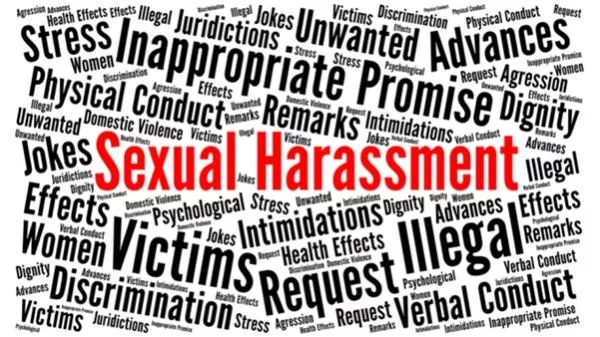
The Scenario
In a well established corporate firm, a female employee shares a cordial relationship with a senior female colleague. At first, their interactions seem normal casual workplace conversations, occasional lunches, and friendly messages. However, things gradually take an uncomfortable turn.
The senior colleague starts making personal comments, frequently touches her arm or back while talking, and insists on spending time outside work. Late-night messages become frequent, often unrelated to work. During a team outing, the colleague becomes possessive, saying, "You always hang out with others but never make time for me. I thought we had something special."
The employee begins to feel uneasy but hesitates to react, unsure if this qualifies as harassment since it's coming from another woman.
Understanding Workplace Harassment Under the POSH Act
Here are some informative points that you should be aware of : -
Does the POSH Act Cover Same-Sex Harassment?
Yes! The POSH Act, 2013 (Prevention of Sexual Harassment at Workplace Act) is meant to protect employees from any form of sexual harassment, regardless of the harasser's gender. While the law was primarily created for women facing harassment from male colleagues, many corporate policies and legal precedents have ensured that same-sex harassment is also recognised and addressed.
What Counts as Workplace Harassment?
Harassment is not about gender; it is about discomfort and consent. Some common forms of same-sex workplace harassment include:
- Unwanted physical contact: Repeated touching, lingering hugs, or standing too close.
- Excessive attention: Constant personal messages, social pressure, or possessive behaviour.
- Sexually suggestive comments: Remarks about appearance, clothing, or personal relationships.
- Emotional manipulation: Guilt-tripping, controlling behaviour, or making the victim feel obligated.
- Hostile work environment: Spreading rumours, threats, or making the victim feel excluded if they distance themselves.
Even if no explicit sexual advances are made, harassment is about how it makes the victim feel if it is unwelcome, it is harassment.
What Should You Do?
Below are the points that you should follow if you are facing sexual harassment from a colleague :
Recognize That This is Harassment
Many people hesitate to report same-sex harassment due to:
- Thinking it's "just friendly behaviour."
- Fear of being judged or dismissed.
- Doubts about whether the law covers such cases.
However, if the behaviour makes you uncomfortable and is unwelcome, it qualifies as harassment. Trust your instincts.
Set Boundaries (If Safe to Do So)
If comfortable, address the behaviour directly. A simple but firm response can help stop the harassment.
- "I prefer to keep our interactions professional."
- "I'm not comfortable with physical contact. Let's maintain workplace boundaries."
- "Please respect my personal space and work-life balance."
If the behaviour continues despite setting boundaries, further action is necessary.
Document the Incidents
Keeping a detailed record strengthens the case if a formal complaint is needed.
- Write down every incident (date, time, location, and exact words/actions).
- Save evidence (messages, emails, or screenshots of inappropriate behaviour).
- Identify witnesses who have observed the behaviour.
Report to HR or the Internal Complaints Committee (ICC)
Under POSH Act guidelines, every company with 10 or more employees must have an Internal Complaints Committee (ICC) to handle workplace harassment cases.
How to Filea Complaint?
- Submit a written complaint to the ICC within three months of the incident.
- Attach any evidence (emails, screenshots, or witness statements).
- Attend the confidential inquiry process, where both parties will be heard.
The ICC is legally required to investigate the matter fairly and take appropriate action, which may include:
- A formal warning to the harasser
- Mandatory sensitivity training
- Reassignment or disciplinary action against the harasser
Escalate If No Action Is Taken
If the ICC fails to act or the harassment continues, escalate the case to:
- The Local Complaints Committee (LCC): If the workplace does not have an ICC.
- The National Human Rights Commission (NHRC): For workplace violations and discrimination.
- Legal action under IPC Sections 354A and 509/ BNS Sections 73 and 78: If harassment involves criminal behaviour.
Take Care of Your Mental Well-Being
Harassment, especially from a trusted colleague, can be mentally exhausting. Seek support from HR, a mentor, friends, or a professional counsellor.
- If the situation becomes too toxic, consider requesting a department transfer or exploring legal options.
- Do not blame yourself; harassment is about the harasser's actions, not the victim's response.
Final Thoughts
Workplace harassment is not defined by gender; it is defined by discomfort and lack of consent. If someone's behaviour is making you uncomfortable, it is okay to set boundaries and seek help.
If it feels wrong, take action. You deserve a workplace that is safe, respectful, and professional.
Comments
When Workplace Boundaries Are Crossed: Understanding Sexual Harassment Under the POSH Act
When Workplace Boundaries Are Crossed: Understanding Sexual Harassment Under the POSH Act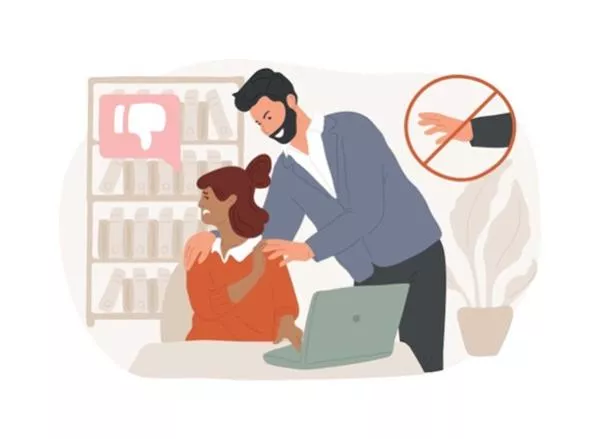
The Scenario
A professional working at a prestigious corporate firm enjoys a productive work environment and is dedicated to career growth. However, over time, interactions with a senior colleague begin to take an uncomfortable turn.
At first, the comments seem like casual compliments on appearance or light-hearted jokes, but soon, they start feeling personal and inappropriate. The senior colleague begins making remarks about dressing style, repeatedly finds reasons to initiate physical contact (such as placing a hand on the shoulder or guiding by the lower back), and sends late-night messages under the pretext of discussing work.
One day, after an official corporate event, the senior colleague offers a ride home. Upon politely declining, the response is a dismissive laugh followed by, "Come on, don't be so formal. After all, I've been helping you out a lot at work." The situation feels uncomfortable, yet fear of being seen as overly sensitive or unprofessional makes it difficult to react immediately.
This is a clear example of sexual harassment in the workplace, and it falls under the POSH Act (Prevention of Sexual Harassment at Workplace Act, 2013). Recognising the situation and knowing the next steps are crucial for ensuring safety and professional integrity.
Understanding Sexual Harassment Under the POSH Act
The POSH Act, 2013, defines sexual harassment as any unwelcome behaviour of a sexual nature at the workplace, including:
- Physical contact and advances: unnecessary or inappropriate touching, even if subtle.
- Sexually coloured remarks: comments about personal appearance, inappropriate compliments, or suggestive jokes.
- Demanding or requesting sexual favours: direct or indirect suggestions for personal or intimate favours in return for professional benefits.
- Showing pornography: sending explicit content via messages, emails, or in person.
- Any other unwelcome physical, verbal, or non-verbal conduct of a sexual nature; this includes persistent texting, staring, or making suggestive gestures.
Even if the behaviour seems indirect or disguised as humour, it can still constitute harassment if it creates an uncomfortable, hostile, or intimidating work environment.
What to Do Next?
If faced with such a situation, here are the steps to take under the POSH Act:
Recognize That This Is Harassment
One of the biggest reasons sexual harassment goes unreported is self-doubt—wondering whether the behaviour was intentional, whether it was "just a joke," or fearing being labelled as overly sensitive.
It is important to remember that harassment is about how the behaviour makes you feel. If it is unwelcome, uncomfortable, or inappropriate, it is harassment.
Document Everything
Maintaining a detailed record of the incidents is crucial, especially if they happen repeatedly.
- Write down the date, time, location, and details of what was said or done.
- Save digital proof: messages, emails, screenshots, or any inappropriate comments made on work platforms.
- List witnesses: If any colleagues were present during an incident, note their names.
A well-documented case strengthens credibility and helps during the formal complaint process.
Set Boundaries(If Safe to Do So)
Sometimes, directly addressing the issue can stop it. If comfortable, clearly communicate that the behaviour is unacceptable.
A firm but professional response might be:
- "I prefer to keep our interactions professional. Please avoid comments on my appearance."
- "I am not comfortable with physical contact. Let's maintain a professional distance."
- "I would appreciate it if we discussed work only during office hours."
If the behaviour stops, this may be the only step needed. However, if the harassment continues, further action should be taken.
Report the Issue to the Internal Complaints Committee (ICC)
Under the POSH Act, every organisation with 10 or more employees must have an Internal Complaints Committee (ICC) that handles workplace harassment complaints.
Steps to File a Complaint:
- Submit a written complaint to the ICC within three months of the incident. This can be extended if there are valid reasons for the delay.
- Attach supporting evidence, such as screenshots, emails, or witness statements.
- Attend the inquiry process, where both parties will be given an opportunity to present their case.
The ICC must investigate the complaint confidentially and recommend appropriate actions, including warnings, transfers, suspension, or termination of the offender, based on the severity of the offence.
Seek Support from HR or Trusted Colleagues
If hesitant about filing a formal complaint, speaking to a trusted senior colleague, HR representative, or mentor can provide guidance on how to proceed. Organisations often have employee assistance programs (EAPs) or counselling services that offer support in handling workplace harassment situations.
Escalate the Complaint if Necessary
If the ICC fails to take appropriate action or the organisation does not have an ICC, the case can be taken to the Local Complaints Committee (LCC) under the jurisdiction of the district administration.
Legal action can also be pursued under:
- Section 354 of the IPC: Assault or criminal force against a woman with the intent to outrage her modesty.
- Section 509 of the IPC: words, gestures, or acts intended to insult modesty.
Under the POSH Act, retaliation against the complainant (such as demotions, negative feedback, or threats) is illegal.
Prioritize Emotional and Mental Well-Being
Experiencing harassment can be emotionally draining. Seeking professional counselling, talking to trusted friends or family members, and practicing self-care can help in processing the experience.
Remember, reporting harassment is not just about personal justice it also helps create a safer workplace for others who may be going through similar experiences.
Final Thoughts
Sexual harassment is not just about extreme cases of misconduct- it includes any behaviour that makes an employee feel unsafe or uncomfortable at work. The POSH Act is designed to ensure a work culture where every employee, regardless of gender or position, feels respected, valued, and secure.
If you or someone you know is facing such a situation, take action, seek support, and remember that your workplace must be a space where you feel safe and empowered.
Comments
Workplace Harassment vs. Discrimination: Key Differences and Your Rights
Workplace Harassment vs. Discrimination: Key Differences and Your Rights
Introduction
Many people confuse workplace harassment and discrimination, but they are not the same. Both can create an unsafe work environment, but they have different causes, legal protections, and ways to take action. Understanding the difference between harassment and discrimination will help employees know their rights and take the right steps if they face unfair treatment at work.
In this article, you will learn:
- What workplace harassment is
- What workplace discrimination is
- Key differences between the two.
- Legal protections under Indian law
- How to report and take action
What is Workplace Harassment?
Workplace harassment happens when someone is mistreated in a way that creates an unsafe or uncomfortable work environment. It can be verbal, physical, or emotional abuse that affects the person's ability to work.
Examples of Workplace Harassment:
- Sexual Harassment: A boss asks for sexual favours in exchange for promotions.
- Verbal Abuse: A co-worker keeps insulting or humiliating someone in front of others.
- Bullying: A manager constantly threatens or shouts at an employee.
- Intimidation: A senior employee uses fear to control or silence a junior worker.
- Spreading Rumours: False gossip is spread to damage an employee's reputation.
Example: If a female employee is constantly touched inappropriately by her supervisor and feels unsafe, this is sexual harassment, not discrimination.
Laws Protecting Employees from Workplace Harassment in India:
- POSH Act, 2013: Protects women from sexual harassment at the workplace.
- BNS Section 73 and 78 Indian Penal Code (IPC) Section 354 and 509: Covers physical harassment, verbal abuse, and stalking.
- Industrial Disputes Act, 1947: Covers workplace bullying and unfair treatment.
What is Workplace Discrimination?
Workplace discrimination happens when an employee is treated unfairly based on personal factors like gender, religion, caste, disability, or age.
Examples of Workplace Discrimination:
- Gender Discrimination: A company pays women less than men for the same job.
- Age Discrimination: An older employee is denied a promotion because of their age.
- Religious Discrimination: A worker is harassed or excluded for their religious beliefs.
- Caste Discrimination: A Dalit employee faces unfair treatment due to their caste.
- Disability Discrimination: A disabled person is denied job opportunities due to their condition.
Example: If a company refuses to hire a woman because they believe she will take maternity leave, this is gender discrimination, not harassment.
Laws Protecting Employees from Workplace Discrimination in India:
- Equal Remuneration Act, 1976: Ensures equal pay for men and women for the same work.
- Rights of Persons with Disabilities Act, 2016: Protects disabled employees from discrimination.
- Scheduled Castes and Scheduled Tribes (Prevention of Atrocities) Act, 1989: Protects against caste-based discrimination.
- Article 14 and 15 of the Indian Constitution: and;Guarantees equality and protection against discrimination.
Key Differences Between Harassment and Discrimination
Feature | Harassment | Discrimination |
|---|---|---|
| Definition | Unwanted behaviour that creates a hostile work environment | Unfair treatment based on gender, caste, religion, disability, etc. |
| Examples | harassment, bullying, intimidation, sexual harassment, verbal abuse | Unequal pay, hiring bias, denial of promotions |
| Impact | Creates stress, fear, and mental trauma | Limits career growth and job opportunities |
| Legal Protection | POSH Act, IPC laws, Industrial Disputes Act | Equal Remuneration Act, Disability Act, SC/ST Act, Constitution |
| Who Can File a Complaint? | Any employee facing harassment | Any employee facing unfair treatment due to identity |
| How to Take Action? | Report to HR, ICC, or police | File a complaint with the labour department or court |
What Should You Do If You Face Harassment or Discrimination?
If you face Harassment or Discrimination, you can report it through : -
How to Report Workplace Harassment?
- For sexual harassment: File a complaint with the Internal Complaints Committee (ICC) under the POSH Act.
- For bullying or verbal abuse: Report to HR or file a police complaint if serious.
- For physical harassment: File an FIR under IPC Section 354 or 509.
How to Report Workplace Discrimination?
- File a complaint with HR if facing unequal treatment.
- Report to the labour department if denied equal pay, job opportunities, or fair treatment.
- Approach a lawyer to file a case in labour court if discrimination continues.
Conclusion
Both harassment and discrimination create toxic workplaces, but they are different problems with different legal solutions.
- Harassment is about unwanted behaviour that makes a person feel unsafe (e.g., sexual harassment, bullying).
- Discrimination is about unfair treatment due to gender, caste, religion, age, or disability.
If you face workplace harassment or discrimination, take action! Report it, seek legal help, and demand fair treatment. A workplace should be safe, fair, and respectful for everyone.
FAQs on Workplace Harassment vs. Discrimination
- Can a male employee file a complaint under the POSH Act?
No. POSH protects only women, but men can file complaints under company policies or IPC laws. - Can workplace discrimination happen to men?
Yes! Both men and women can face caste, age, religion, or disability-based discrimination. - What should I do if HR ignores my harassment or discrimination complaint?
For harassment: File a police complaint or approach the Local Complaints Committee (LCC).
For discrimination: Approach the labour court or human rights commission. - What if my boss punishes me for complaining?
Retaliation is illegal. Employers cannot fire, demote, or punish employees for filing a complaint.
Comments
Your Support System: What to Expect When Filing a Sexual Harassment Complaint Under POSH.
Your Support System: What to Expect When Filing a Sexual Harassment Complaint Under POSH.
Filing a sexual harassment complaint at work can feel overwhelming, but under the Prevention of Sexual Harassment (POSH) Act, 2013, there are several types of support available to help employees who face harassment. The law ensures that complainants receive respect, confidentiality, and protection throughout the process. Let's break down the support you can expect:
1. Emotional and Psychological Support
When dealing with sexual harassment, it's important to receive emotional and psychological support. The POSH Act makes sure organisations offer this support to the complainant.
Counselling Services
- What it is: Many companies offer counselling services to help employees cope with the emotional impact of harassment. This support can be provided by trained professionals, either from within the company or from external services.
- Why it's important: Counselling helps you manage the emotional stress caused by harassment and allows you to talk about your experience in a safe, non-judgmental space.
Mediation and Conflict Resolution
- What it is: Sometimes, mediation is offered as a way to resolve the issue without taking it further. Mediation can only be used if both the complainant and the accused agree, and it's not suitable for cases of severe harassment.
- Why it's important: This method can resolve misunderstandings or minor issues without escalating the matter, though it's used carefully when appropriate.
2. Legal Support
The POSH Act also provides legal support, ensuring your rights are respected throughout the complaint process.
Guidance from the Internal Complaints Committee (ICC)
- What it is: The ICC will guide you through the entire process, explaining what will happen next and ensuring everything is done according to the law.
- Why it's important: The ICC provides a fair, confidential, and transparent investigation process, protecting everyone involved. They will explain your legal rights and how the matter will be handled.
Option to Seek External Legal Help
- What it is: If you're not comfortable with the internal process, you have the right to consult with an external lawyer or legal expert.
- Why it's important: A lawyer can provide legal advice and ensure your complaint is handled properly, giving you extra support in navigating the legal complexities.
3. Workplace Adjustments and Safety Measures
The POSH Act ensures that complainants are protected and can work in a safe environment during and after the investigation.
Temporary Relief or Suspension of the Accused
- What it is: If needed, the accused may be suspended during the investigation to protect the complainant from further harassment.
- Why it's important: This helps ensure the complainant can continue working without fear of retaliation or further harassment.
Transfer to a Different Department or Team
- What it is: If you're uncomfortable working with the accused, you can request to be moved to another team or department.
- Why it's important: This measure ensures that the complainant can work in a harassment-free environment while the investigation is ongoing.
Workplace Flexibility
- What it is: If needed, you can request flexible work hours or the option to work from home to avoid direct contact with the accused.
- Why it's important: This helps prioritise your emotional well-being, allowing you to continue your work without added stress.
4. Confidentiality and Protection from Retaliation
Confidentiality and protection from retaliation are key components of the POSH Act.
Confidentiality in the Process
- What it is: The identity of the complainant, the details of the complaint, and the findings of the investigation must remain confidential.
- Why it's important: Confidentiality prevents the complainant from facing embarrassment, stigma, or further emotional distress.
Protection from Retaliation
- What it is: The POSH Act prohibits any retaliation, such as job loss or social exclusion, for filing a complaint.
- What happens: If retaliation occurs, you can file a separate complaint, and the company is required to take corrective action against the person responsible.
5. Disciplinary Actions Against the Perpetrator
The POSH Act ensures that the person who harassed you is held accountable for their actions.
Possible Disciplinary Measures
- What it is: Depending on the severity of the harassment, the company can take different actions against the accused:
- Warnings: A formal reminder about the company's harassment policy.
- Suspension: The accused may be suspended during the investigation.
- Termination: If the harassment is substantiated, the accused may be fired.
Why it's important: These actions help ensure a zero-tolerance policy for harassment and protect you from further harm.
6. Reporting to External Authorities
If the company doesn't handle the complaint properly, you can approach external authorities.
District Officer
- What it is: The District Officer supervises the implementation of the POSH Act in the district. If your complaint isn't addressed properly, you can file a complaint with them.
National Commission for Women (NCW)(ncw)
- What it is: The NCW can step in if the company fails to act or if the harassment is severe. They can provide additional support and guide you on further steps.
Conclusion: Comprehensive Support Under the POSH Act
The POSH Act provides a robust system of support for those facing sexual harassment at work. From emotional support, workplace adjustments, and legal protection to confidentiality and protection from retaliation, the law ensures that complainants are treated fairly and respectfully. If you are experiencing harassment, remember that you have the right to a safe work environment, and the POSH Act ensures that there are clear processes in place to protect your rights. The support offered by the POSH Act helps empower employees, ensuring that cases of harassment are dealt with seriously and justly.
Comments